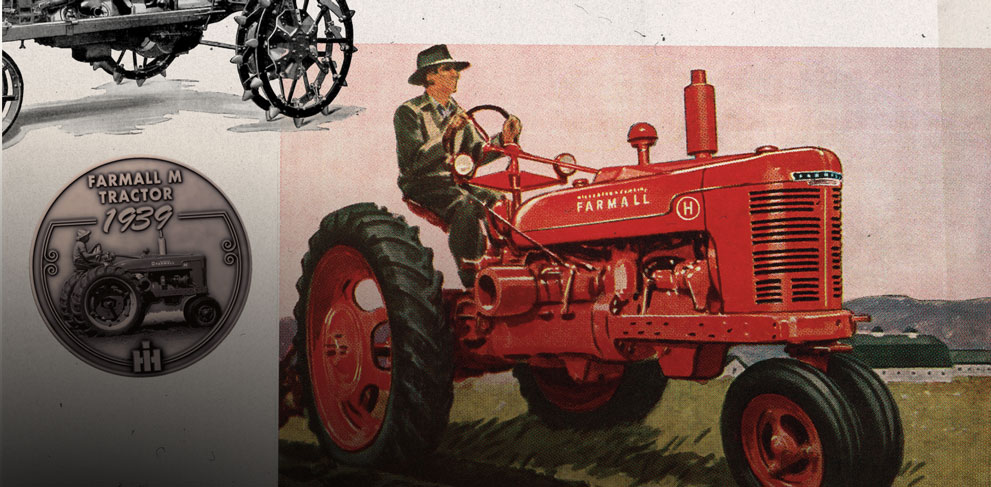
100 Years of Farmall
For the past century, Farmall has revolutionized modern farming. Check out this timeline, which follows the progress across many eras.

For the past century, Farmall has revolutionized modern farming. Check out this timeline, which follows the progress across many eras.
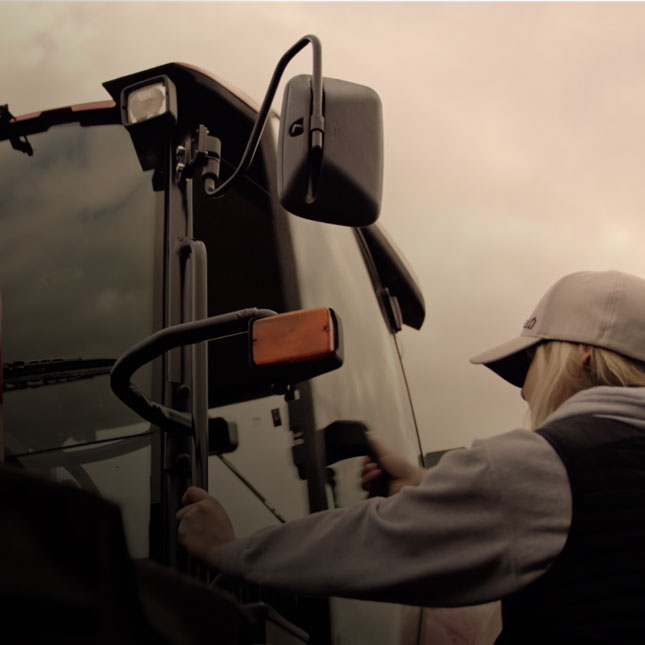
This 100-year anniversary celebrates the legacy of Farmall, which has supported farmers, generation after generation.
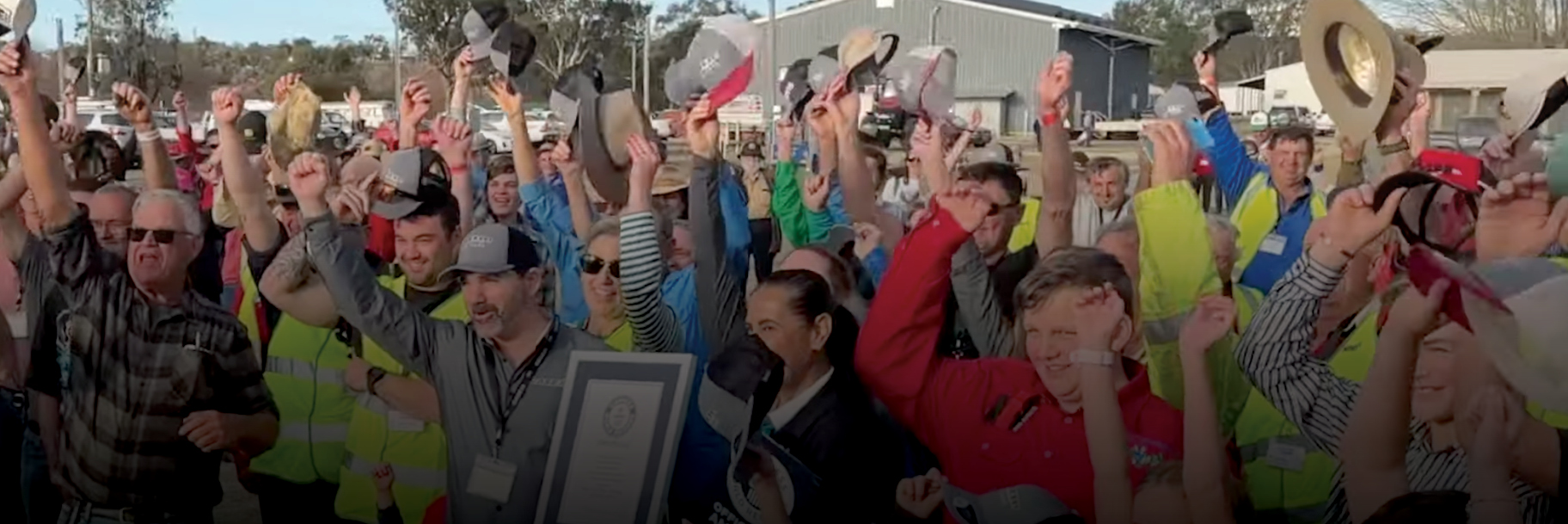
Take a trip around the world and discover how we celebrated the anniversary.
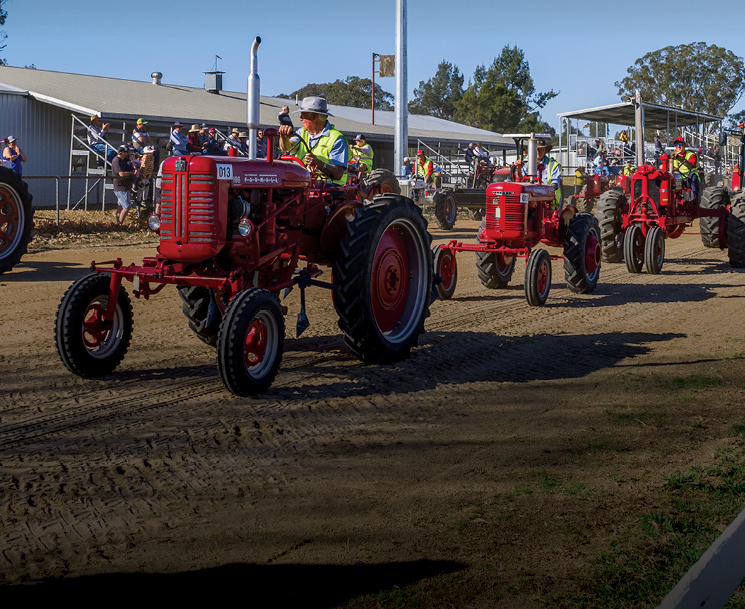
Farmall collectors across Australia teamed up to create an astonishing 110-Farmall procession across 3.2 kilometers of track at the local showground last summer.
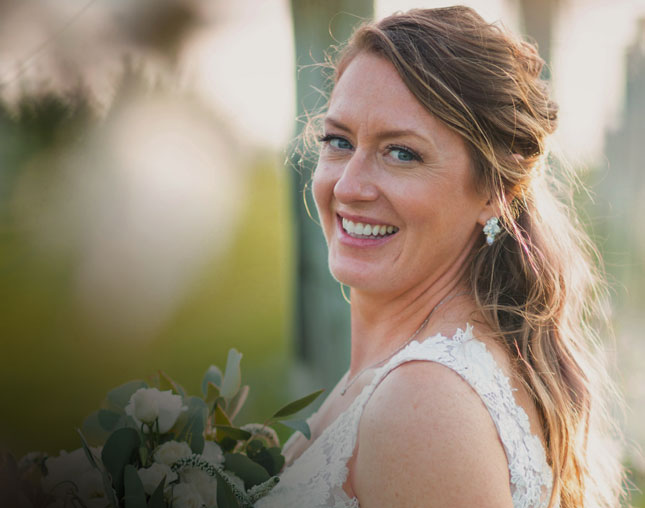
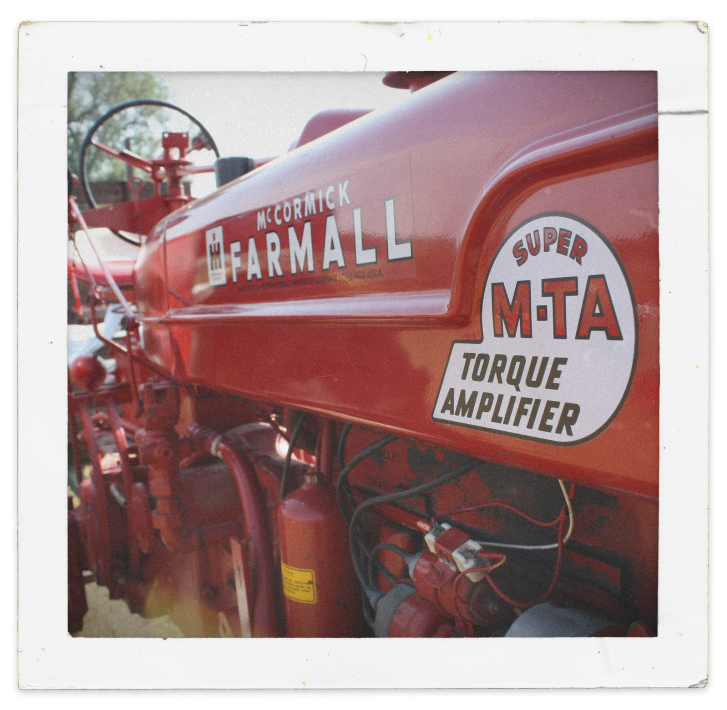
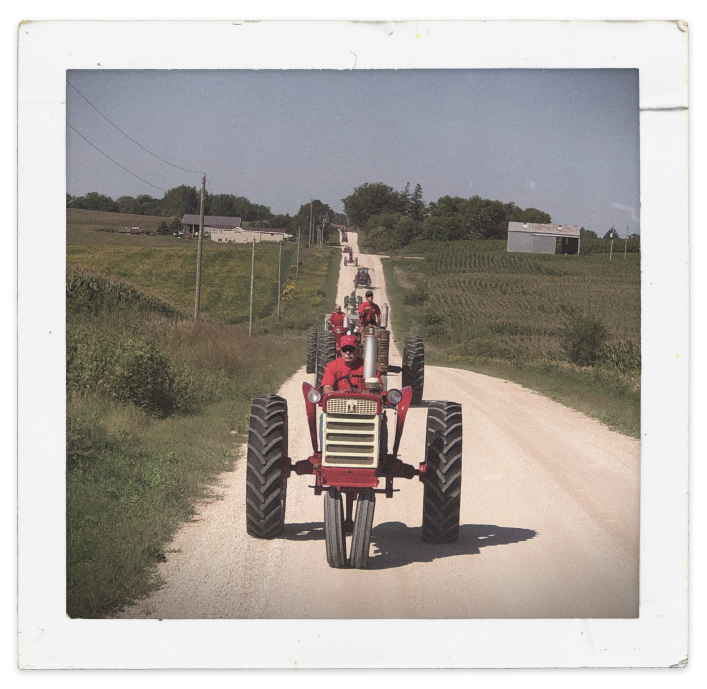
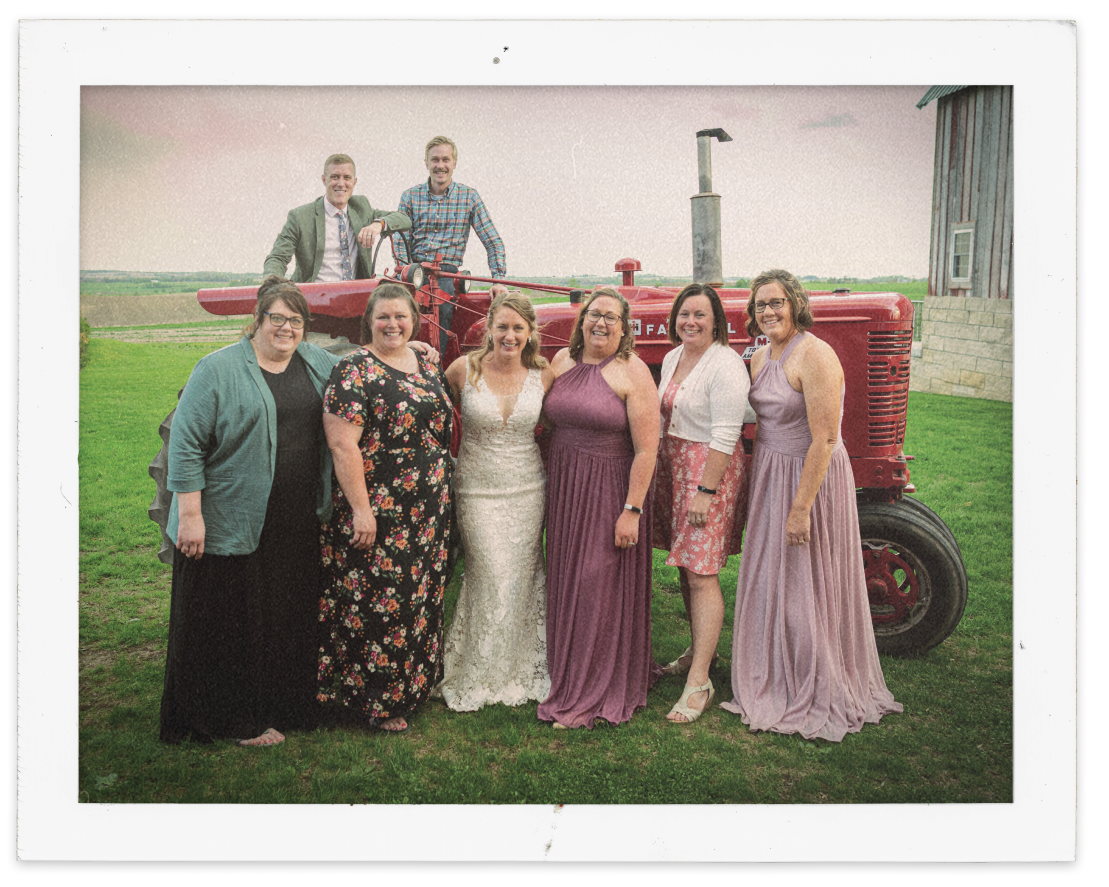
In the 1950s, Holly’s grandfather and great-grandfather had more to do on the farm than ever. Those extra acres meant they needed an all-purpose machine to help them out. They bought their first Farmall, a Super M-TA. They made a wise choice.
And then in the ’80s, when her father needed even more power, they bought another M-TA. It made sense. One became the main workhorse. The other, well, the other got a full refurbish and became the other workhorse.
Eventually, the original M-TA became their “parade tractor.” Today, it leads the memorial parade for Holly’s father every year. And when Holly and Andy got married, it was the centerpiece for pictures. On the hood of the tractor was a memorial for Holly’s father — on the same Farmall he refurbished all those years ago.
His legacy lives on through their family’s Farmall. And that love her family has for their M-TA only grows deeper year after year.
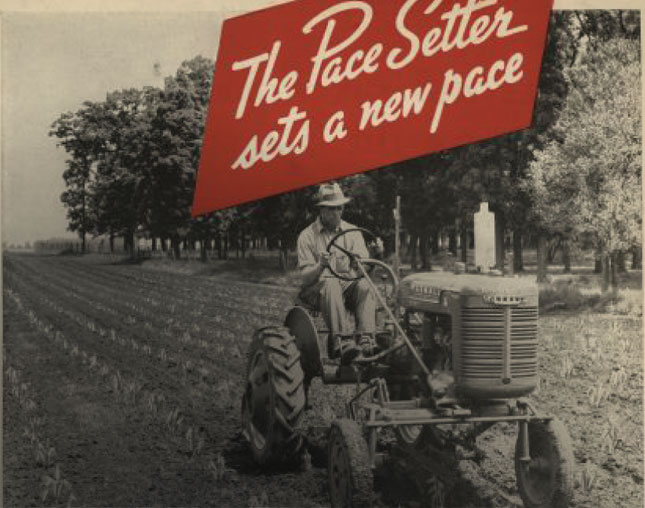
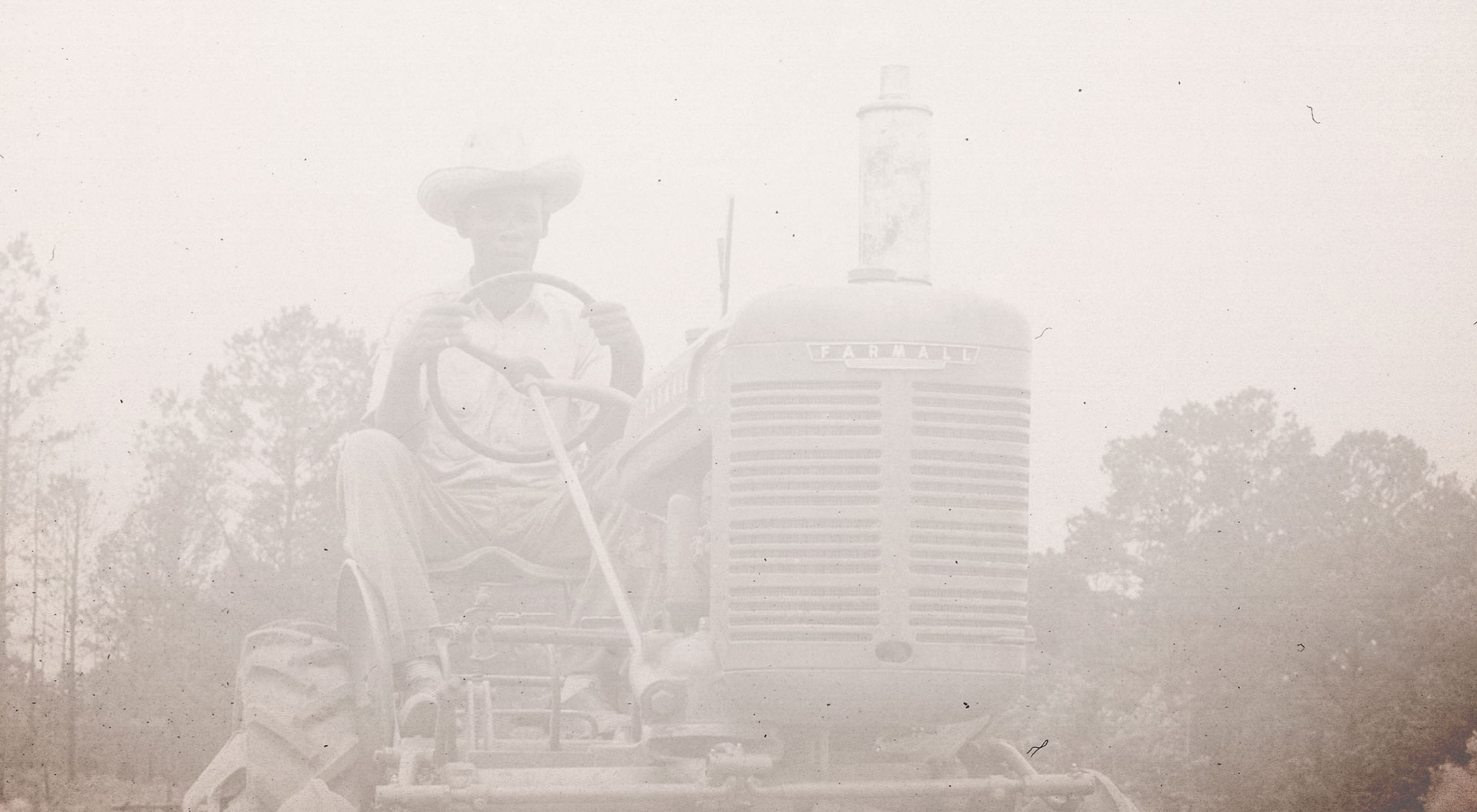
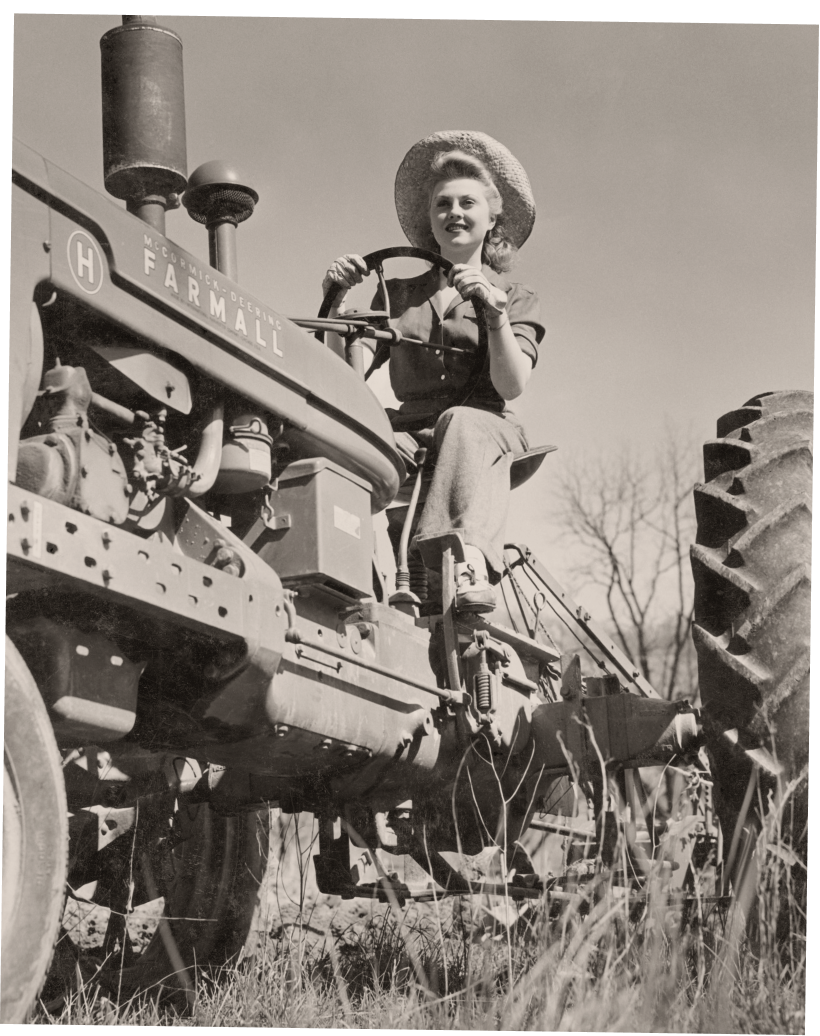
In 1923, Bert R. Benjamin had a vision. A tractor that wasn’t made for one single purpose, but all of them. He rolled up his sleeves and then he and his team at International Harvester built the first Farmall. This prototype was a groundbreaking milestone for farmers. And over its 100 years, the Farmall has had plenty more.
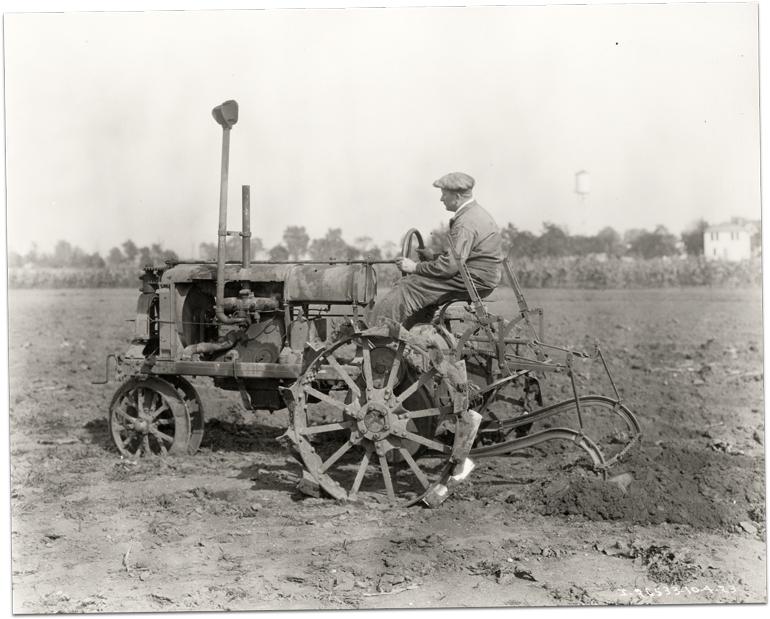
Our first milestone that revolutionized farming, for all. It was a game-changer. A tractor that could do it all. International Harvester filed the patent applications for the first Farmall in 1923 and then proceeded to build 22 — all by hand — for testing by farmers.
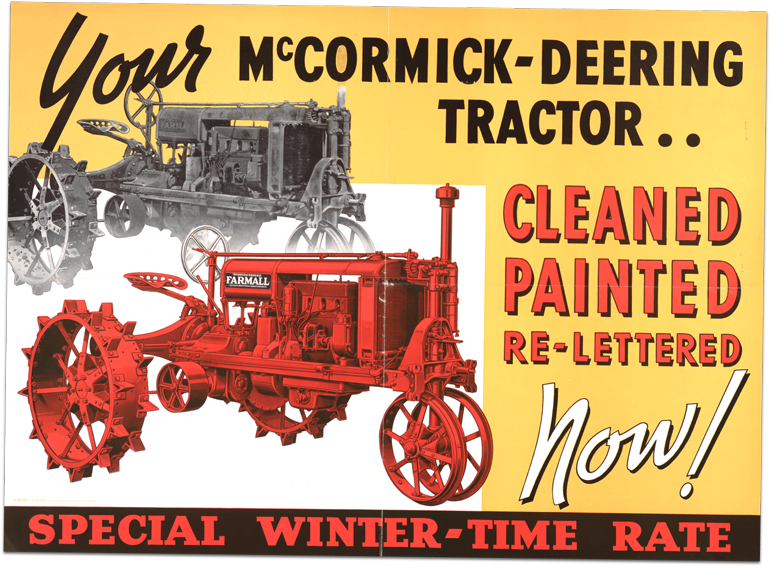
Farmall tractors went all red, replacing the previous gray with red wheel color scheme. The stated reason was that red was a safety factor — with so many Farmall tractors moving on public roads. But we can’t deny that created an iconic look for the whole Case IH brand.
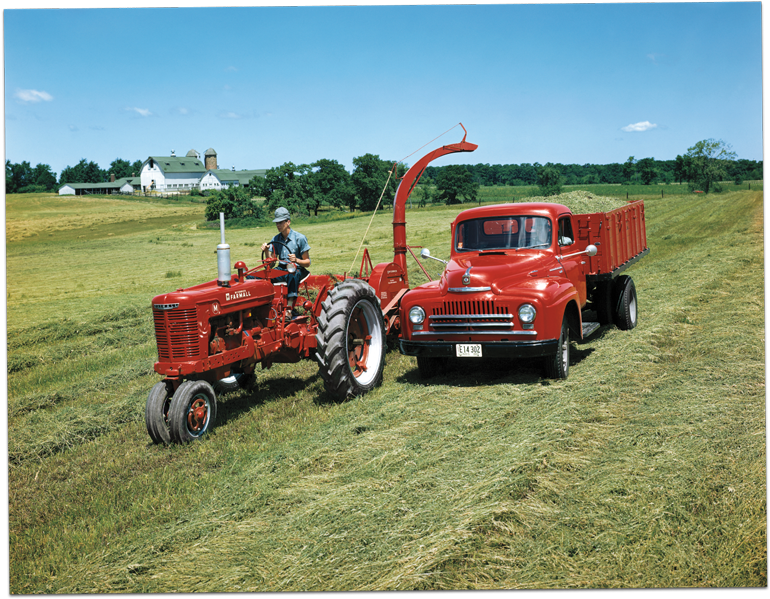
Modern farming went through many milestones, so we created the “Farmall System of Farming.” The system included an extensive list of quick-attach machines that fit the Farmall H and M. This suite of attachments was designed with one purpose — to help operators get more done, fast.
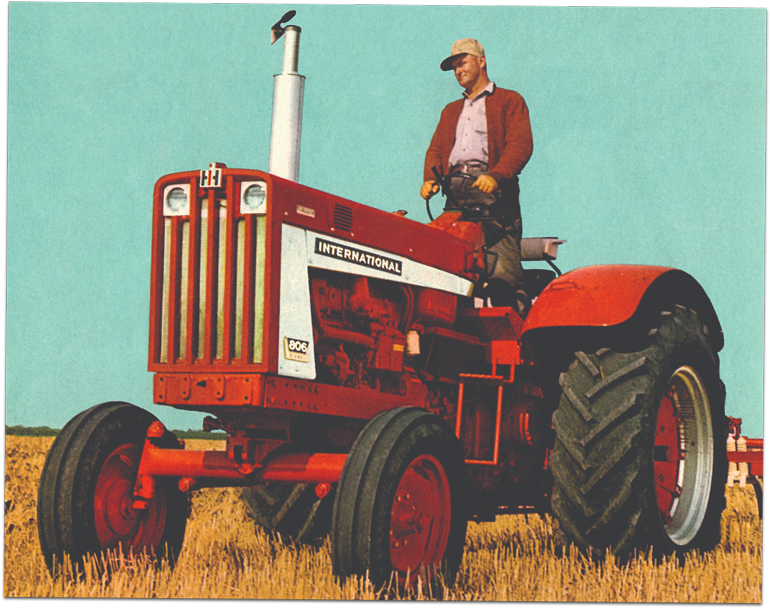
The Farmall 300 and 400 models were introduced with the industry-first two-step power shift (called torque amplifier or TA) and the industry’s first power take off. They were milestones that made the popularity of our number series keep growing and growing.
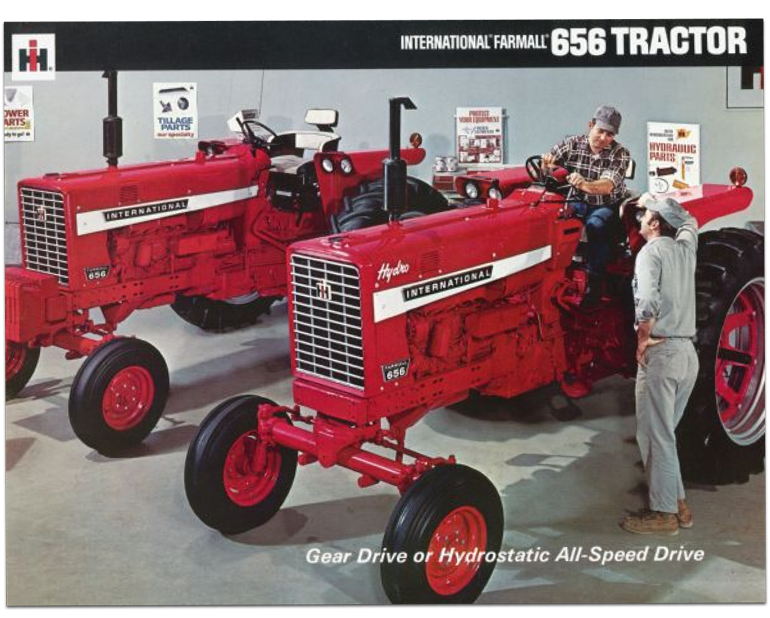
This milestone took us worldwide with the launch of the International Farmall 66 series, part of the first “World Wide Tractors” program. Tractors and components were manufactured in eight countries — United States, United Kingdom, Germany, France, Japan, India, Australia and Mexico — for sales in 125 countries.
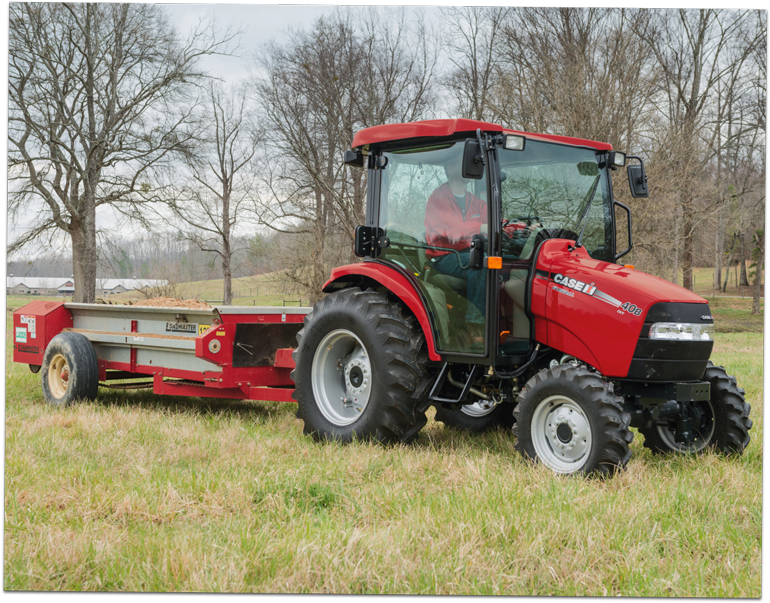
Nearly 30 years after the 5 millionth tractor rolled off the assembly line at the Farmall Works plant in Rock Island, Illinois, and 80 years since the first Farmall was introduced — the icon was once again reimagined as a more compact tractor.
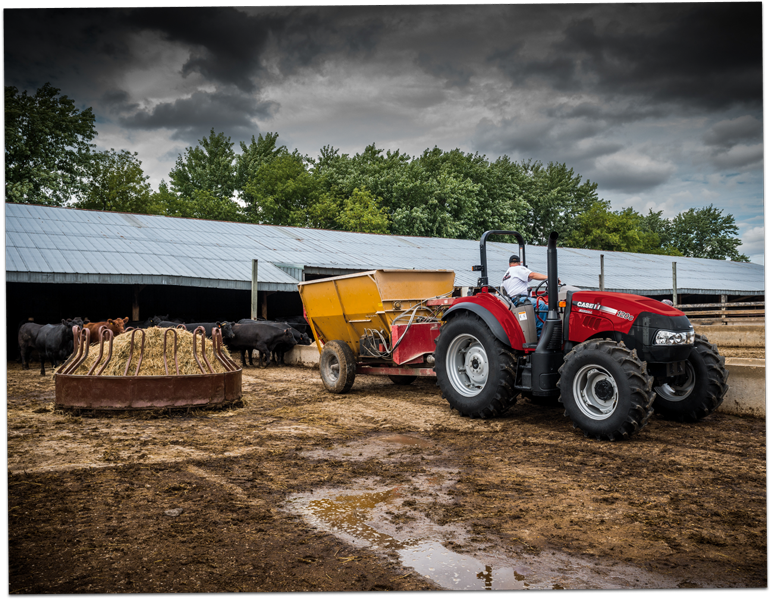
With over 30 models to choose from, every new Farmall tractor that rolls off the production line is another milestone in versatility, power and productivity. These tractors are a testament to the commitment and determination of the men and women that make Farmall a symbol of American ingenuity like no other. Bert would be proud.

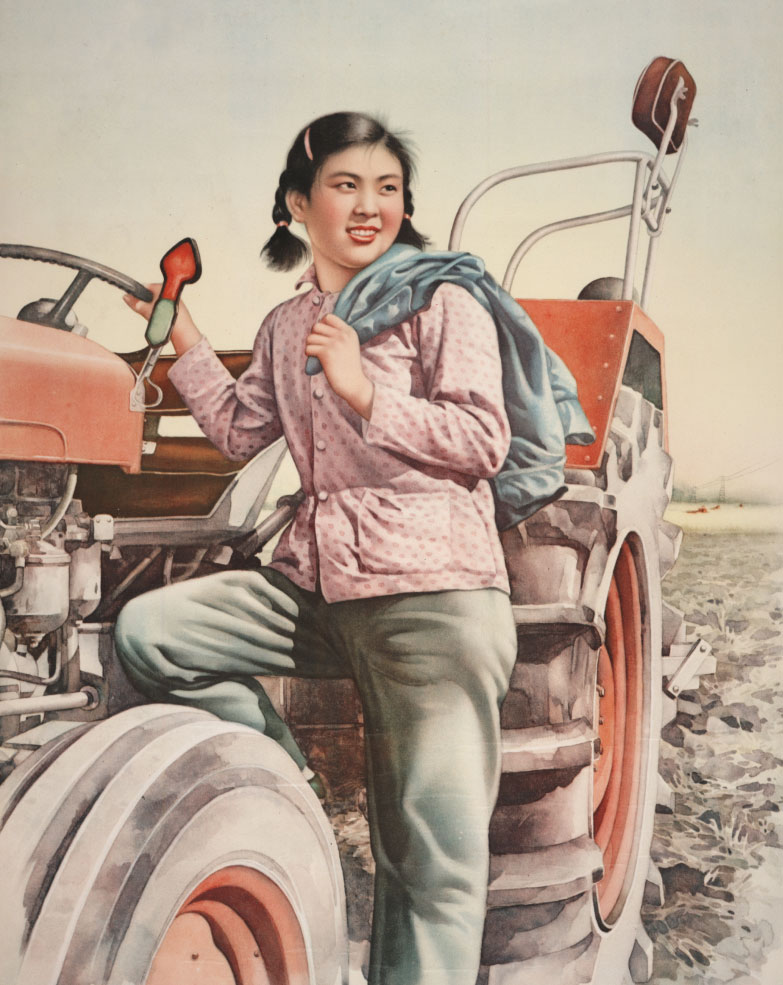


When Liang Jun’s providence in China was liberated after World War II, she was only 15. But that didn’t stop her from knowing she wanted an education and she wanted to drive a tractor — something unheard of in China at the time. In 1948, she enrolled in a tractor driving course and was the only woman among 70 students. That didn’t sway her one bit, as she became the model student of her class. This was just the start of her passion for farming and Farmall® tractors.
Liang gained swift popularity, as she was seen as China’s first female tractor driver. A folk hero in her own right, Liang never stopped working and spreading her passion for agriculture. Pictures of her on top of her Farmall inspired a generation of female tractor drivers. An image of Liang on her Farmall A was even put on a yuan banknote in 1962.
As Liang continued to work with farmers across China — as an instructor, a factory adviser and later as elected government official — she was instrumental in shaping farming and tractor adoption in China. Retiring in 1990, her folk hero status continued as she was written into textbooks and even had three movies made about her. She passed away at 90 years old in 2020, but her impact will still be felt well into the future. One that was forged alongside her Farmall A.
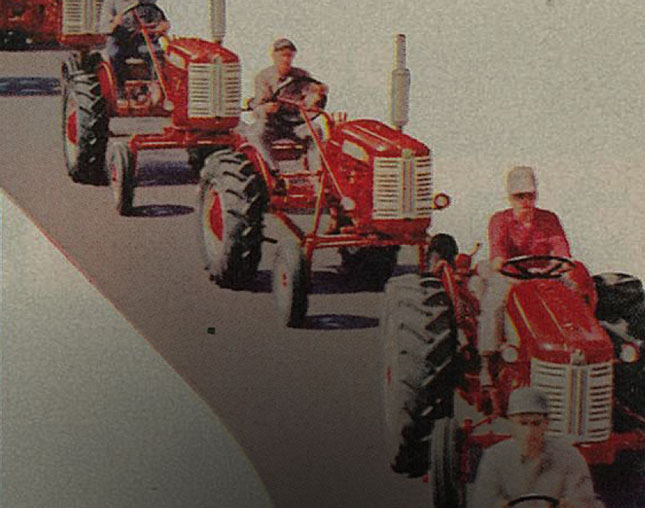
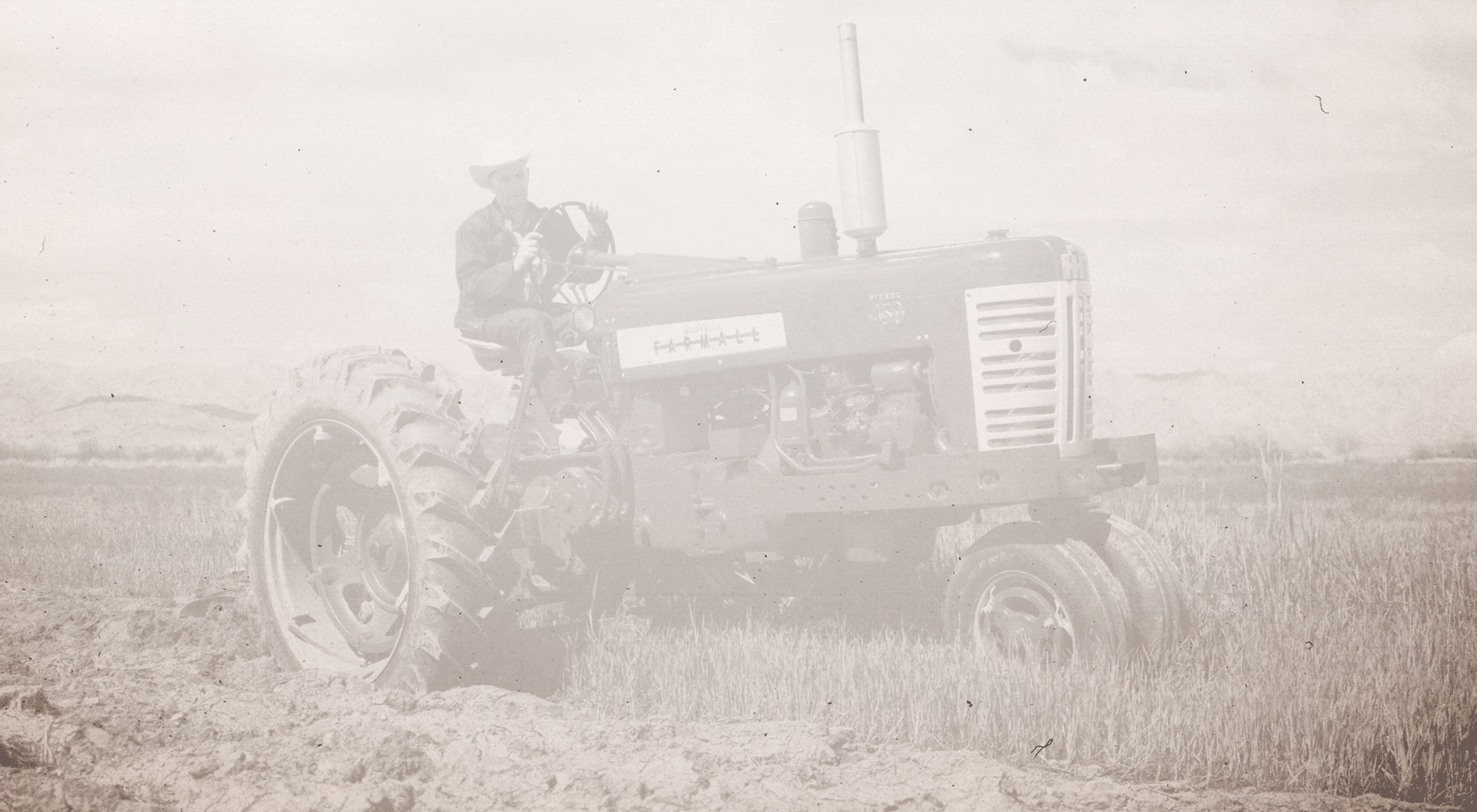
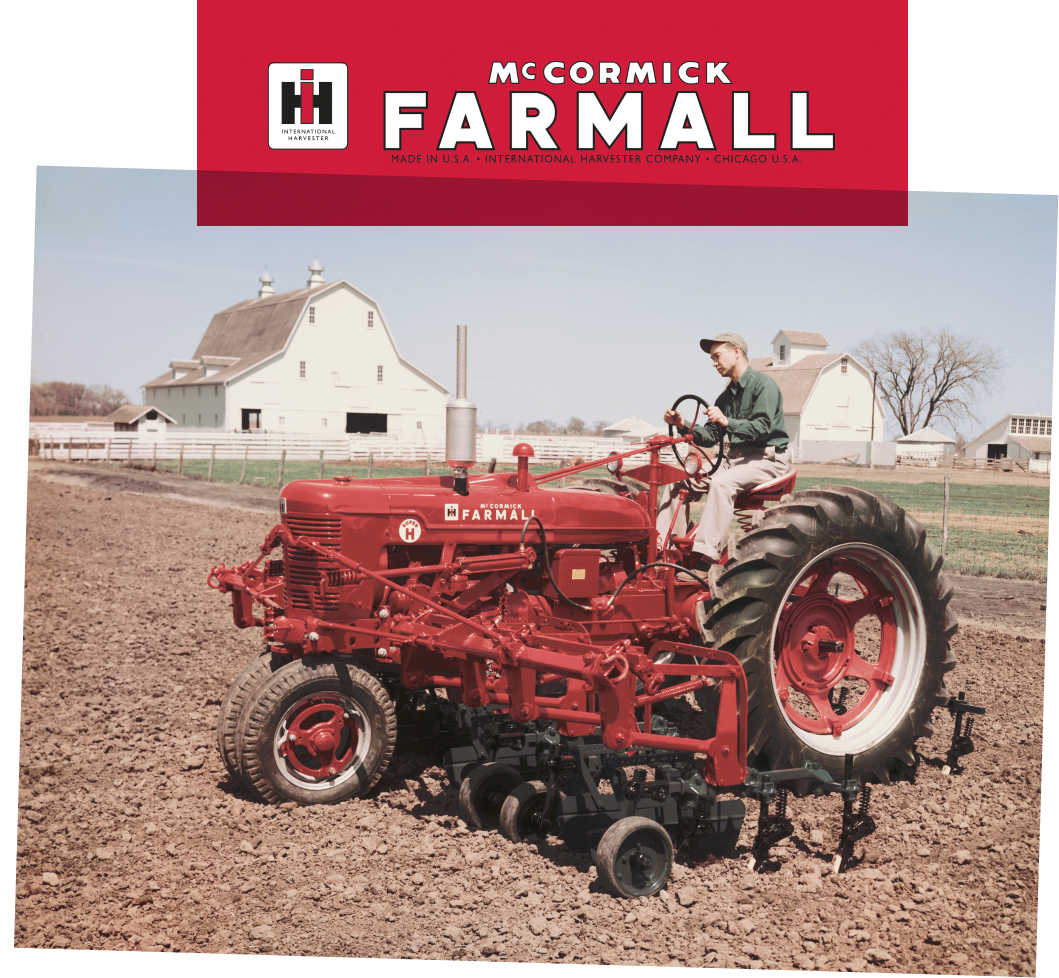
The spirit of Farmall design is born of two, simple words: “What if?” What if we could design a tractor that could do it all? What if it was the most versatile tractor ever? What if the operator always had an optimal view of the crops?
Since inception, Farmall has been synonymous with world-changing, iconic design. From Bert R. Benjamin's original vision to today and into the future, Farmall will always be designed to meet the needs of our farmers. And it's why we’ll never stop asking, “What if?”
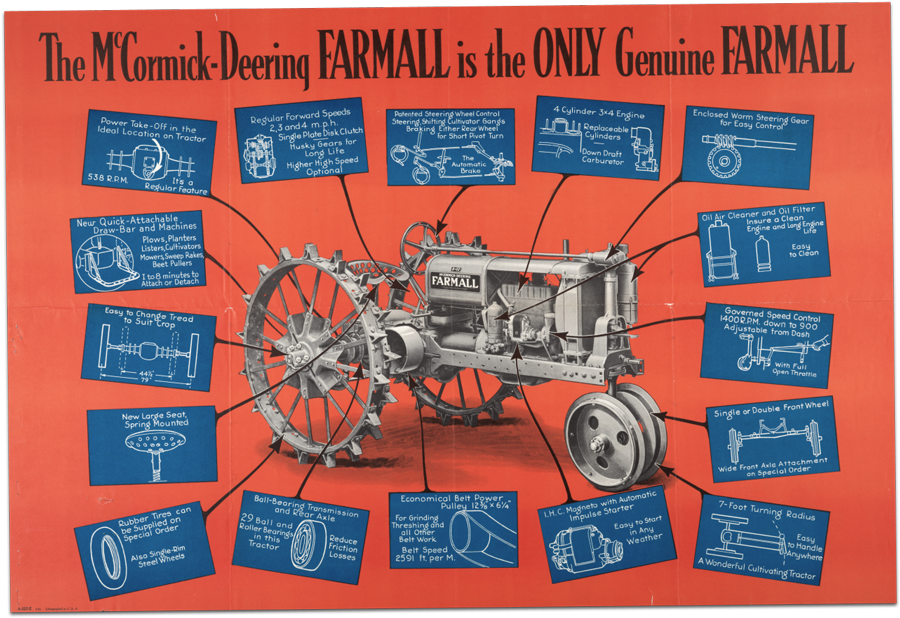
The first-of-a-kind, all-purpose Farmall could pull tillage, planting and harvesting equipment. This design allowed farmers to attach various implements in front and back while the narrow front wheels fit between row crops and the high rear wheels could clear tall rows like corn and cotton. The Farmall narrow frame also improved visibility around crops, and the lighter design was complemented with a high power-to-weight ratio to increase productivity.

The iconic stylings of the second-generation Farmall letter series reflected the efforts of internationally known industrial designer Raymond Loewy. Loewy was hired to give the new Farmall tractors a distinctive, modern appearance, including the three silver stripes and three-dimensional nameplate design.
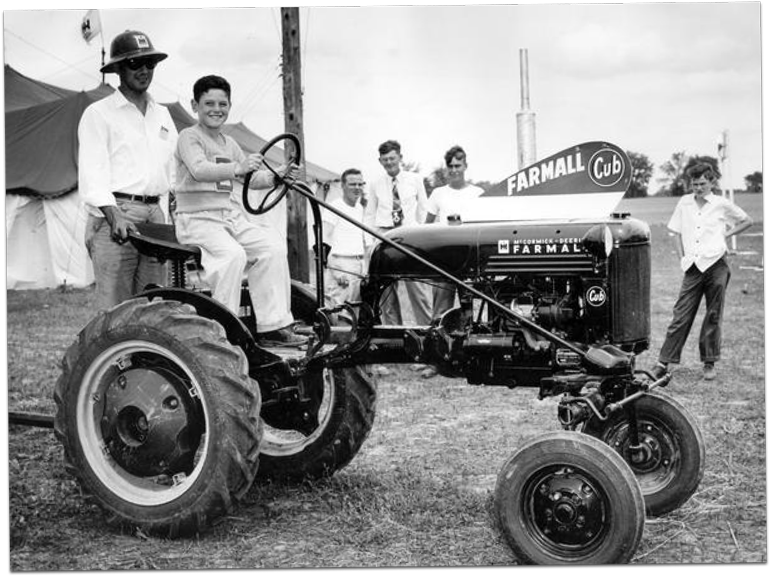
The smallest of the Farmall tractors, the Cub was designed specifically for small-acreage farming in the years following World War II. There were two major variations: the Standard Cub and the Cub Lo-Boy. They were recognized by their distinctive No. 50 Motor Red or Federal Yellow color schemes. In the late 1950s, sales of the Cub shifted from agricultural to industrial purposes, and the standard color for the Cub Lo-Boy and Cub changed to yellow with red as an option.
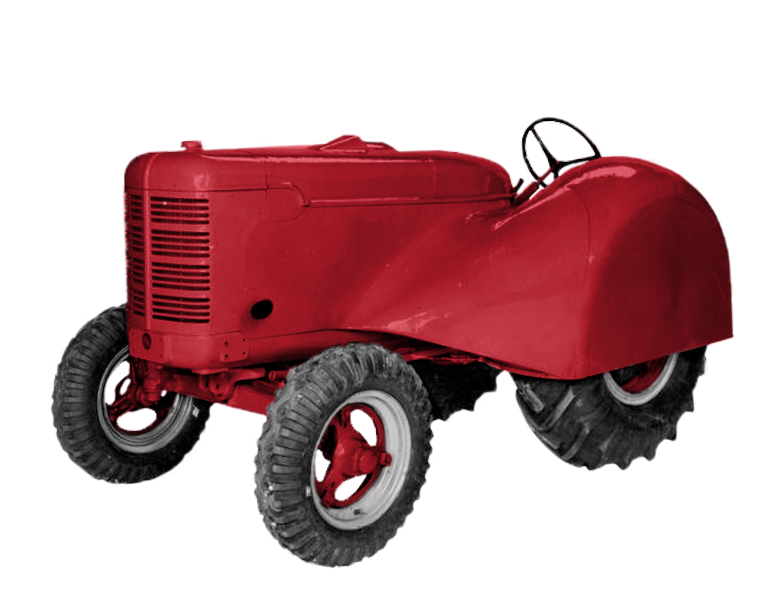
The Raymond Lowey designed Farmall O series Orchard tractors, included the O-4 and O-6. They were Farmall tractors like no other. The O series has been described as “Buck Rogers at 4 miles per hour,” although in transport gear it could reach 14. From the full, sheet metal fenders to the lowered seat, controls and steering, the O’s were engineered to work in harsh environments and were as utilitarian as they were beautiful. During a 12-year production run, only 1,962 were made.
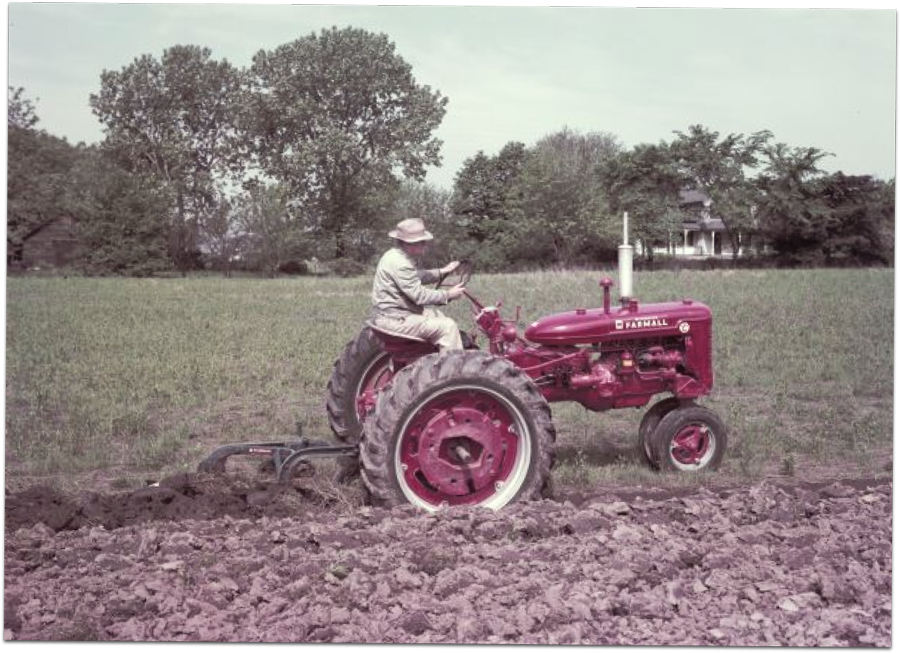
The Super series Farmall tractors proved that good design is more than good looks. The Farmall Super C featured the ingenious 2-point fast-hitch, making it super easy (pun intended) to attach rear-mounted implements. Or as an old ad for Farmall once described it, Farmall brings “back-click-and-go-convenience to every farm, large or small!”
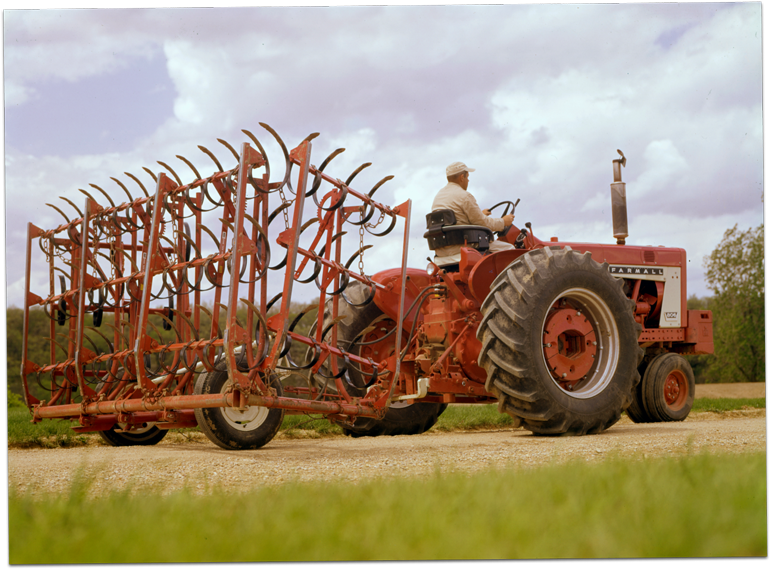
The sixth-generation Farmall 706 and 806, introduced in 1962, were the first new Farmall designs in nearly 30 years and featured straighter, more angular lines. The Farmall 806 was marketed as the world’s most powerful and toughest all-purpose tractor boasting the new D361 engine.
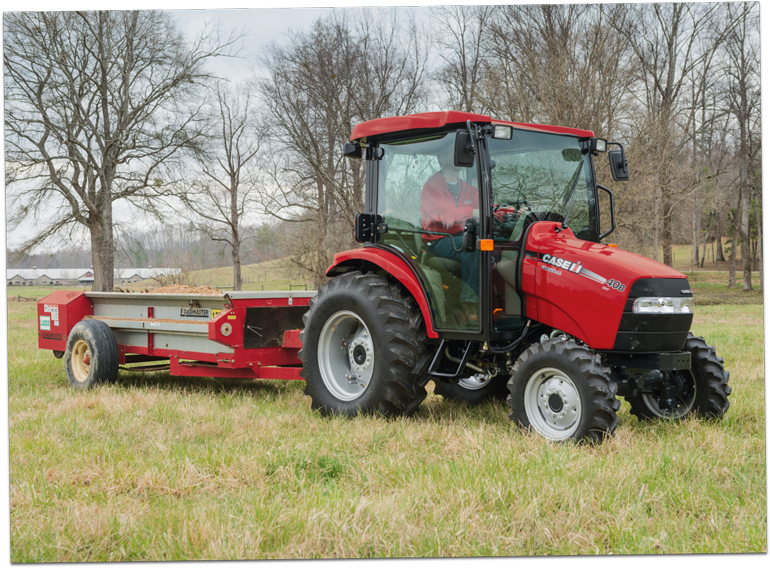
After 80 years of iconic design, the Farmall series was once again reimagined with a line of modern, compact tractors designed for small farms and residential acreage. The new Farmall tractors combined thoughtful design and utility engineering with advanced technology.
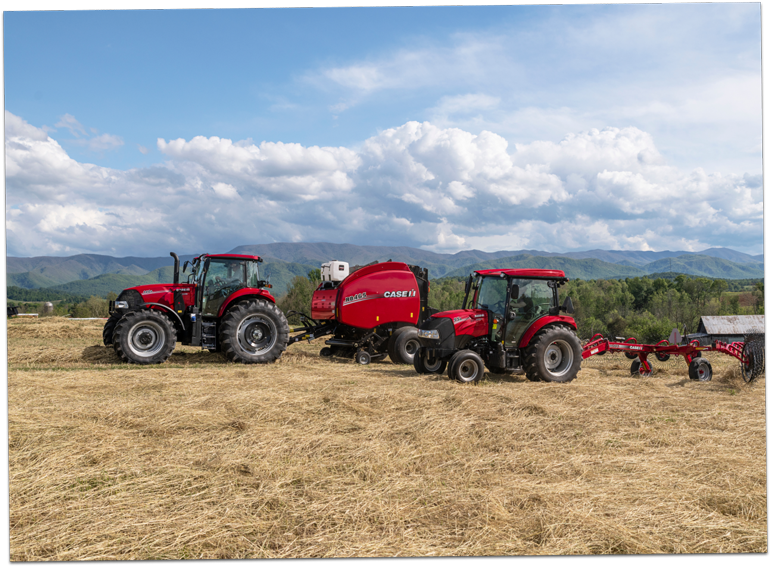
The Farmall legacy continues, stronger than ever, with 30 models designed for today’s farming needs and challenges. Like the Farmall tractors before them, the current series is designed to be versatile, powerful and productive by combining thoughtful design and utility engineering with advanced technology.

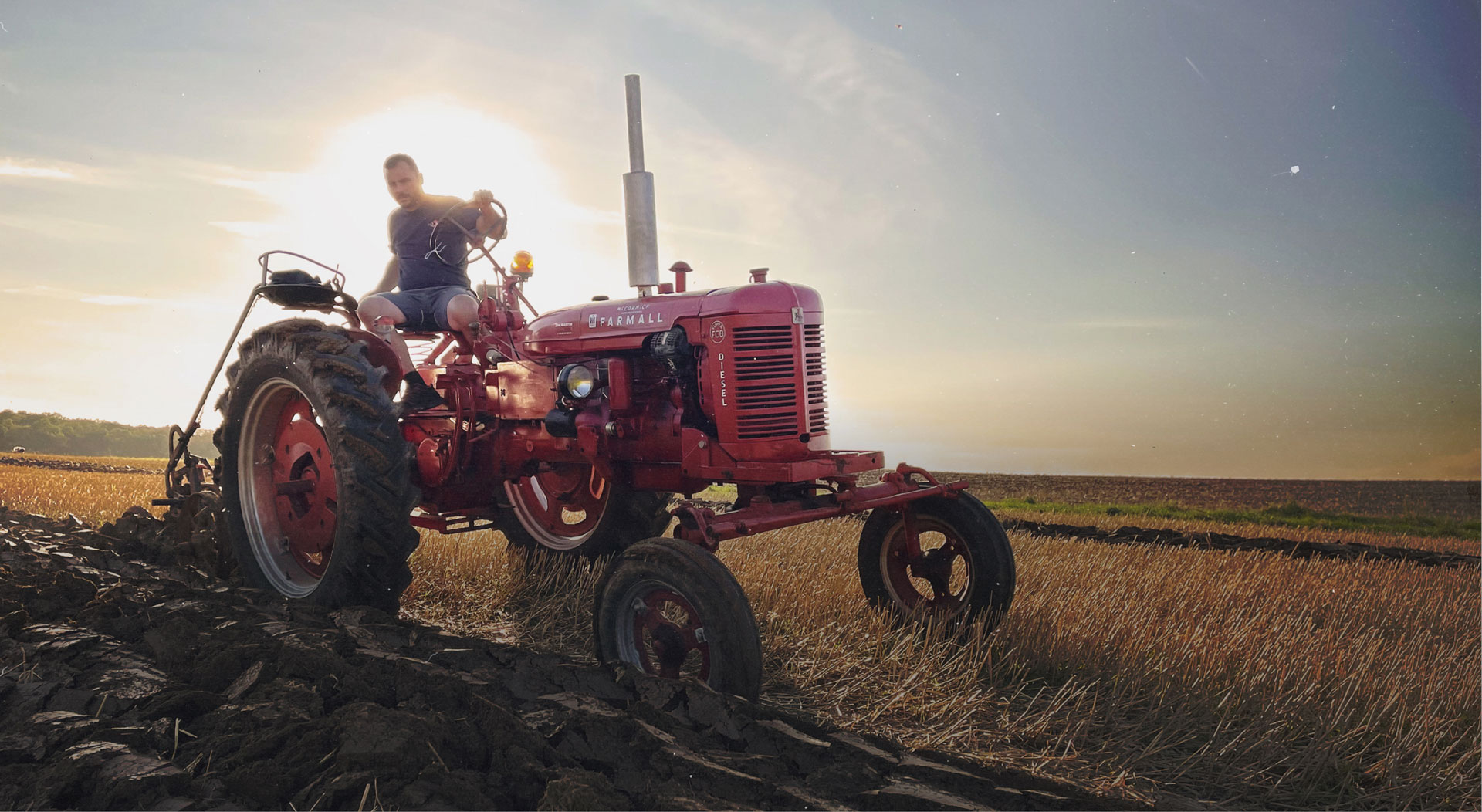

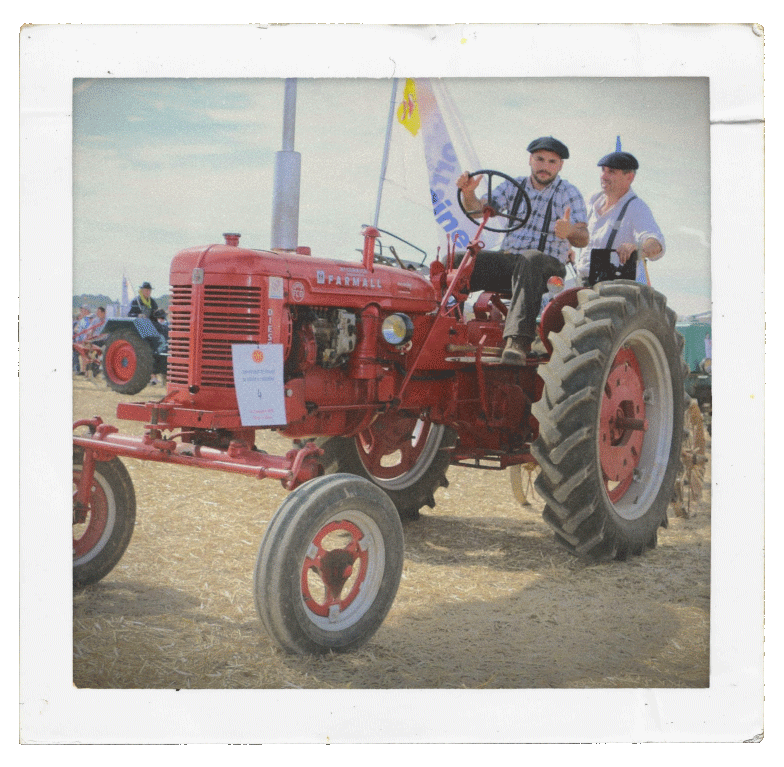
Jonathan grew up close to Case IH, not just on his grandpa’s farm in Moselle but with one of France’s best family dealerships as a neighbor. Some of his earliest memories are riding an International Harvester Combine with his grandfather and riding their Farmall® F142D tractor with his father. He started to drive by himself at 10, beginning with a 1055 while many other Farmall and Case IH models followed.
One Farmall has always stayed around the farm – his father’s 1957 Farmall FCD. His family farm owns a couple of Farmall models, but the FCD is extra special. It has an award-winning legacy. Jonathan won two titles as Auger-Champion of France for old-fashioned plowing, both in 2018 and 2021.
Jonathan’s Farmall FCD has shown up to get work done since it started on the farm. Even if the work is a bit more competitive lately, it still doesn’t quit. And this story isn’t over yet. Jonathan hopes his two children follow his same path and win a few more awards on that same family Farmall.
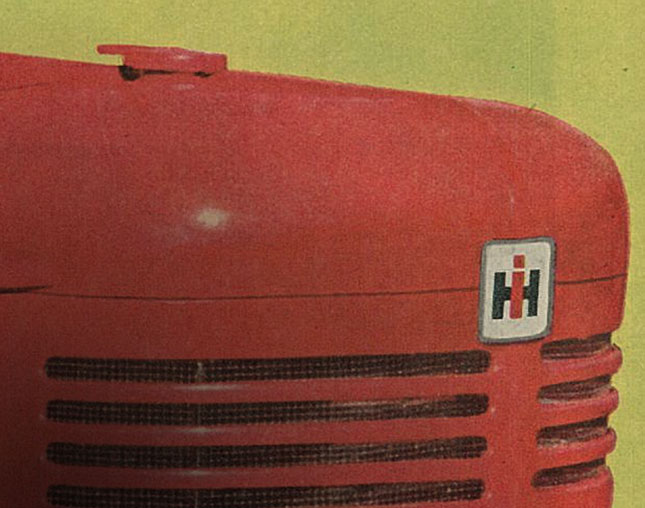
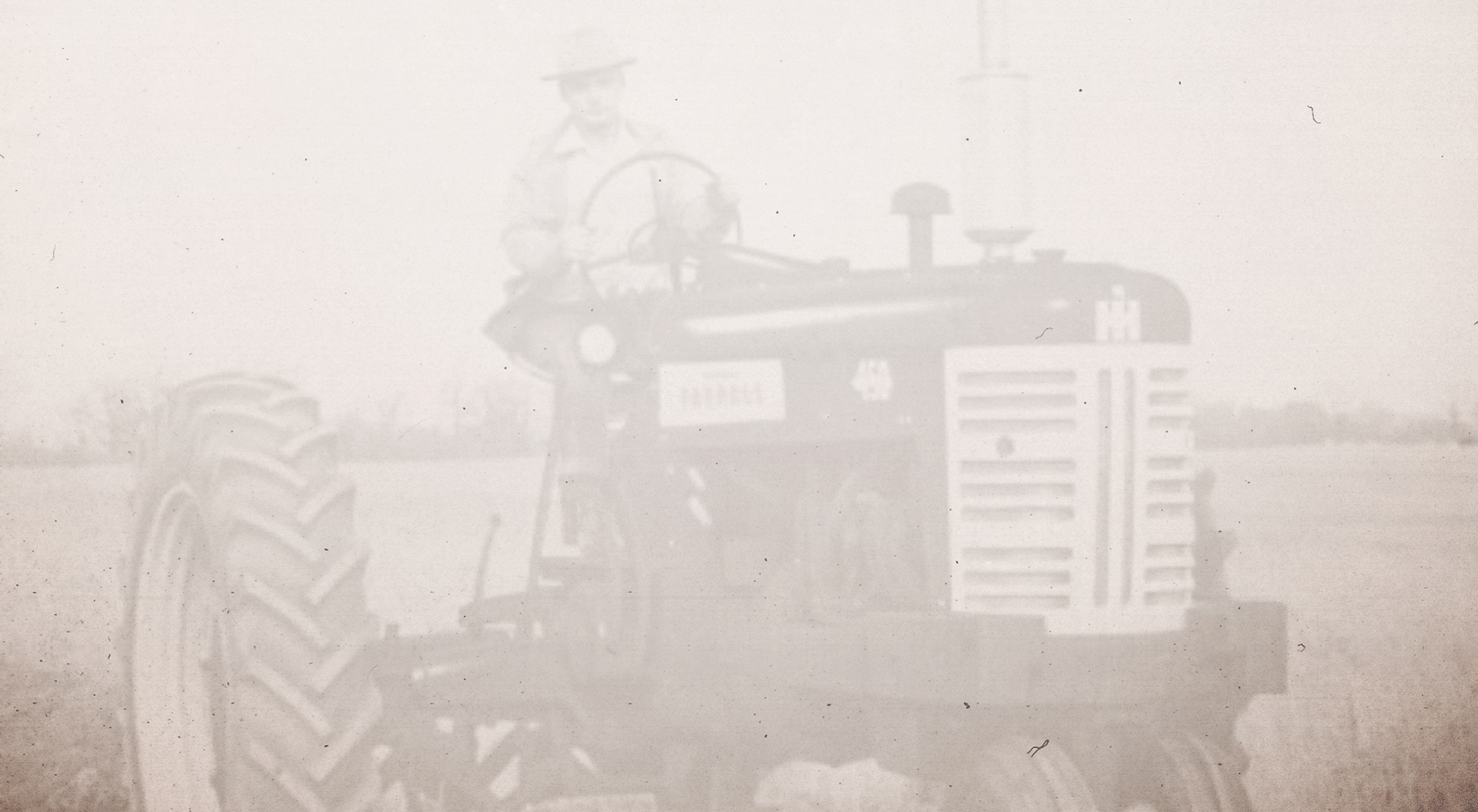
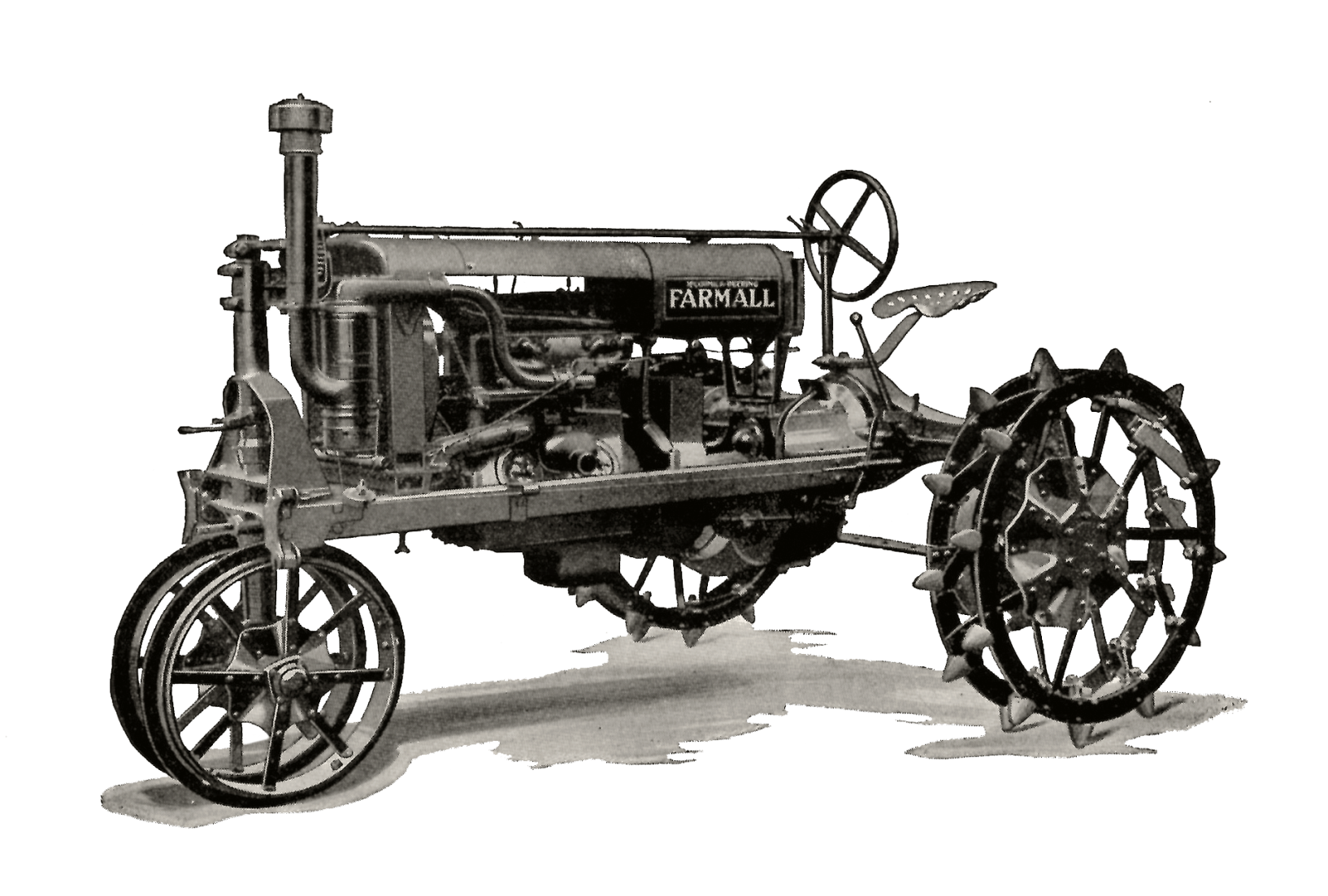
It’s been called “the red tractor that revolutionized farming” for good reason. From Bert R. Benjamin’s ingenious vision for the tractor that could do it all to over 130 patents in 100 years, innovation has always been the backbone of Farmall. Since Day 1, the story of Farmall has been one of countless firsts, spanning multiple models and decades. Farmall has never stopped innovating to meet the needs of farmers, generation after generation.

International Harvester files patent applications for the Farmall Regular — the first row crop tractor that could pull tillage, planting and harvesting equipment. The first-of-a-kind all-purpose design allows farmers to attach various implements in front and back.
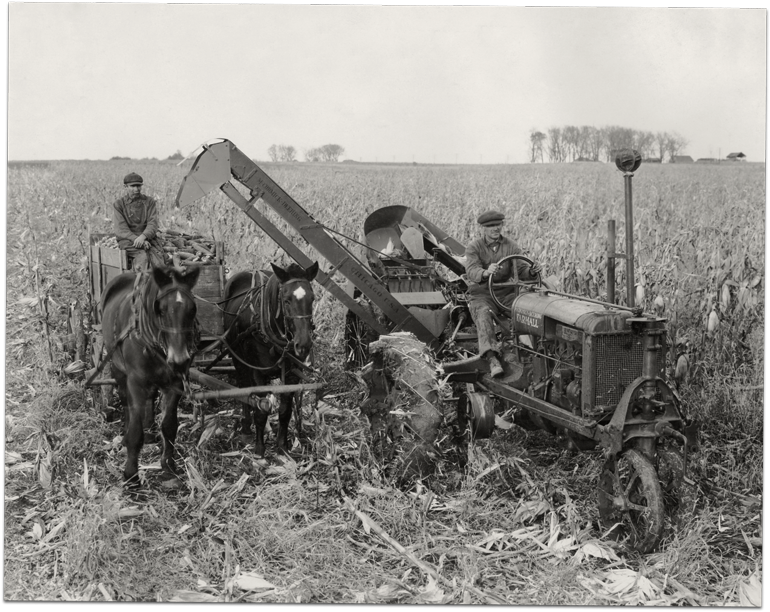
Power take off (PTO) for implements, four-speed transmission, a gasoline engine, floor-to-floor pedal control, and the revolutionary “Culti-Vision” design that moved the operator to the right of the engine for optimal crop visibility. The F series was all innovation.
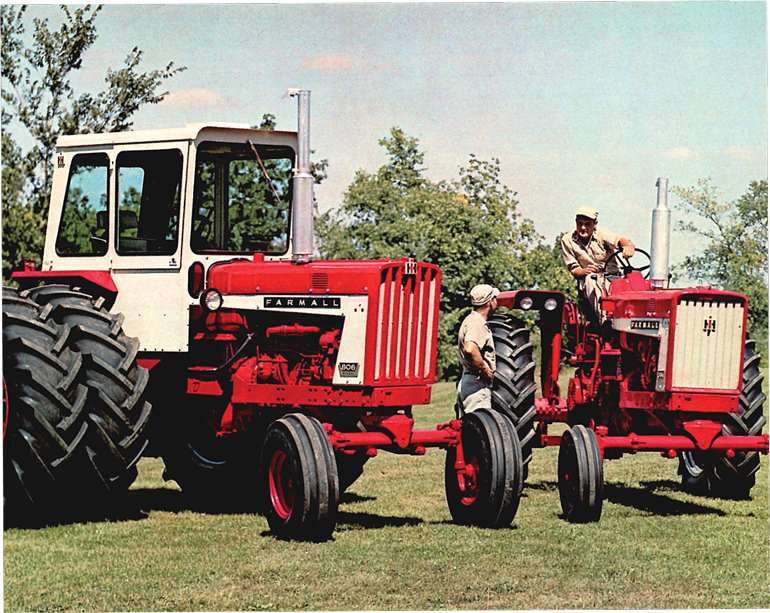
The number series Farmall was introduced with the industry-first two-step power shift (called torque amplifier or TA). The Farmall 806 was designed to be the world’s toughest and most powerful all-purpose tractor boasting the new D361 engine, while the Farmall 1206 was the first 2WD row crop tractor to exceed 100 horsepower.
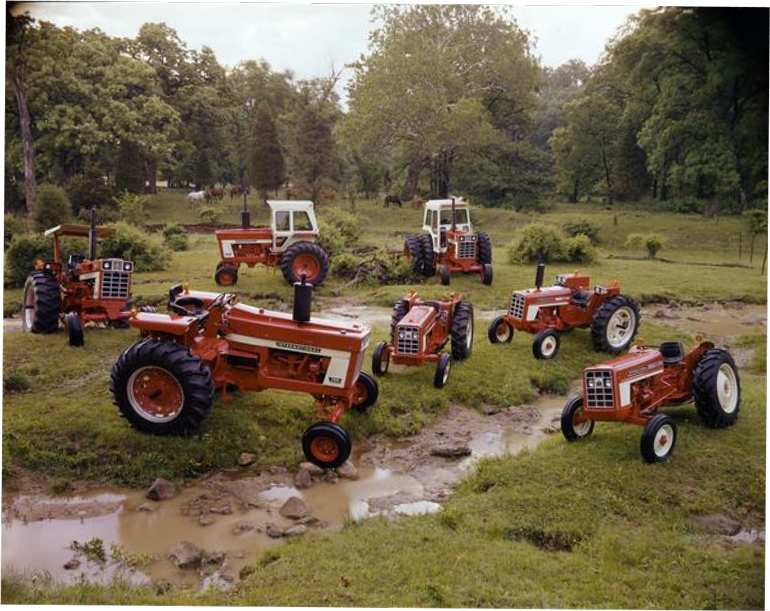
A first in farming, continuously variable hydrostatic transmission (how’s that for a mouthful) gave more flexibility by using hydraulic fluid to transmit energy. It provided infinitely variable transmission for precise matching of speed and power for any job.
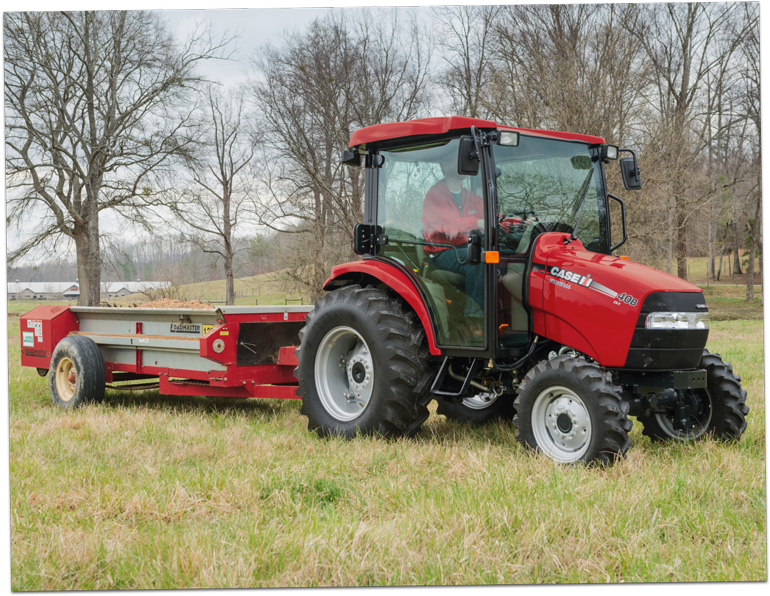
Noticing an increased need of small-acreage specialty tractors, Case IH reintroduced the Farmall tractor lineup. By 2008, three new classes of compact tractors were designed for no-nonsense, no-frills, all-purpose applications — innovative design that knew how to stay out of the way.
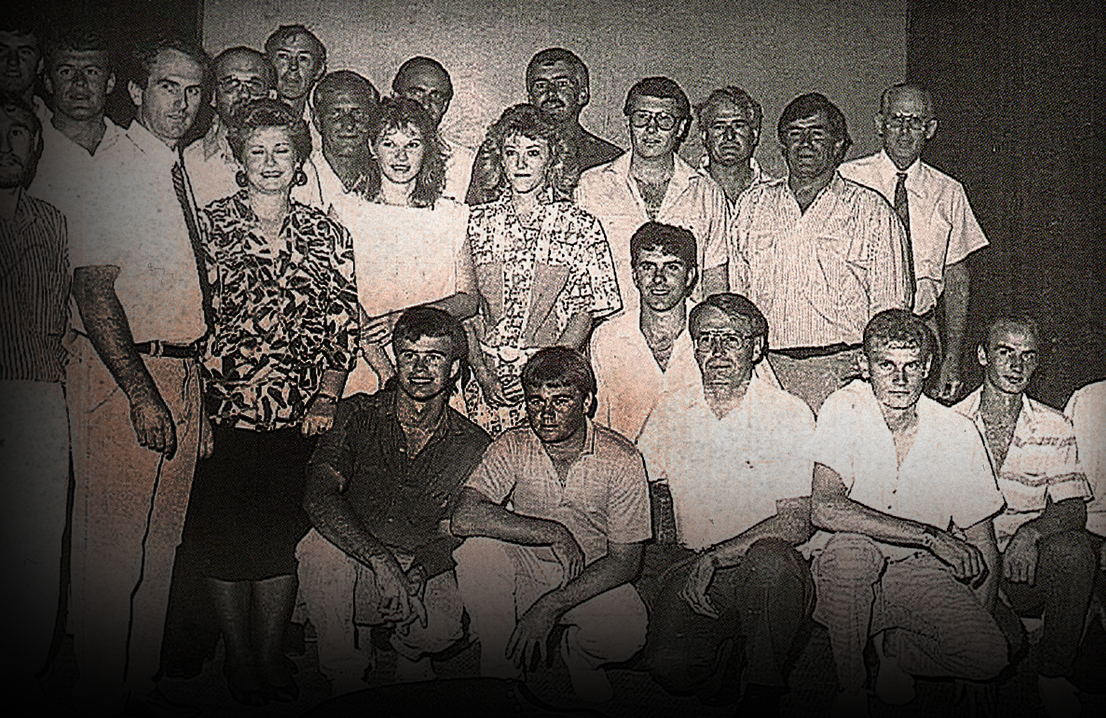
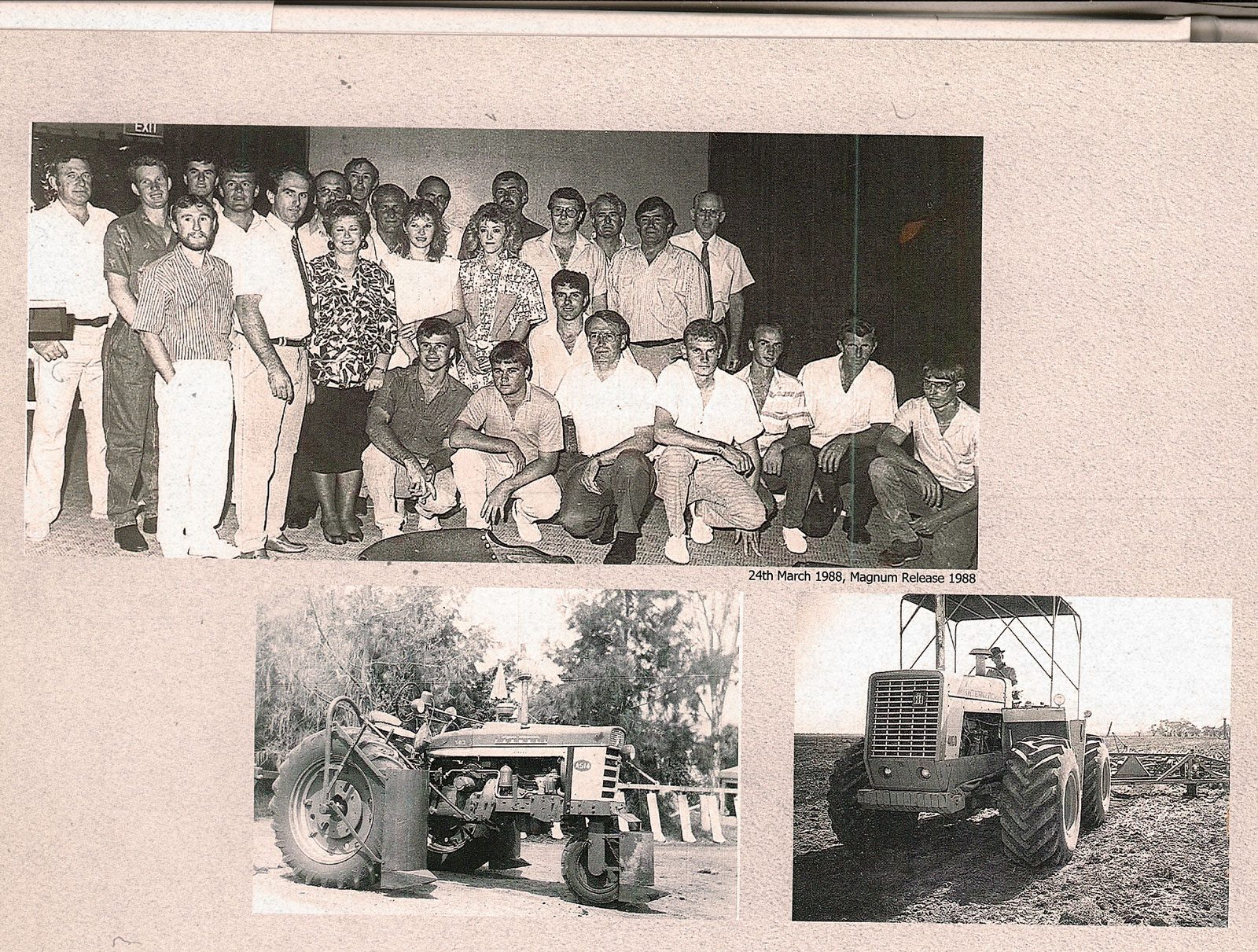
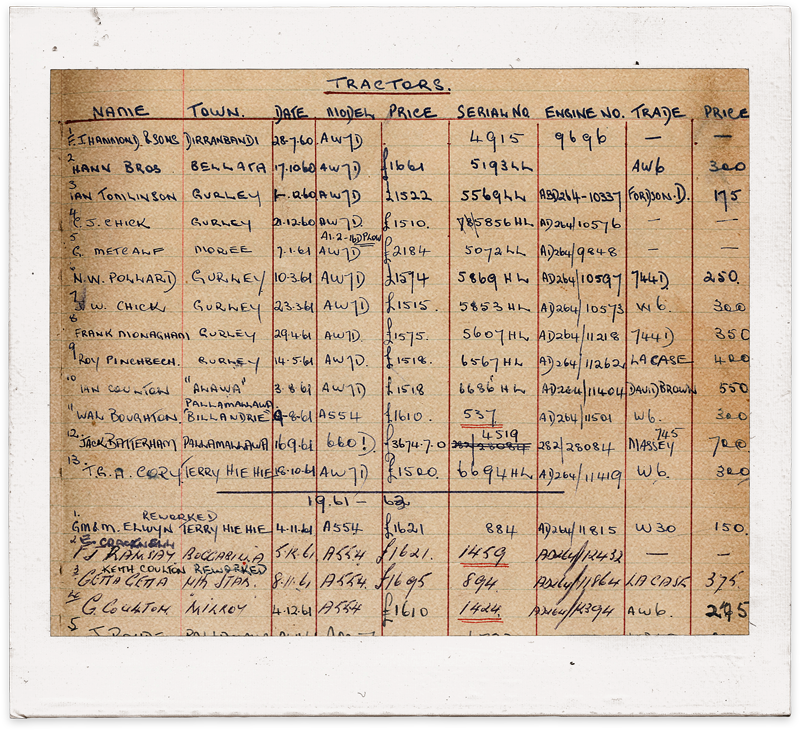
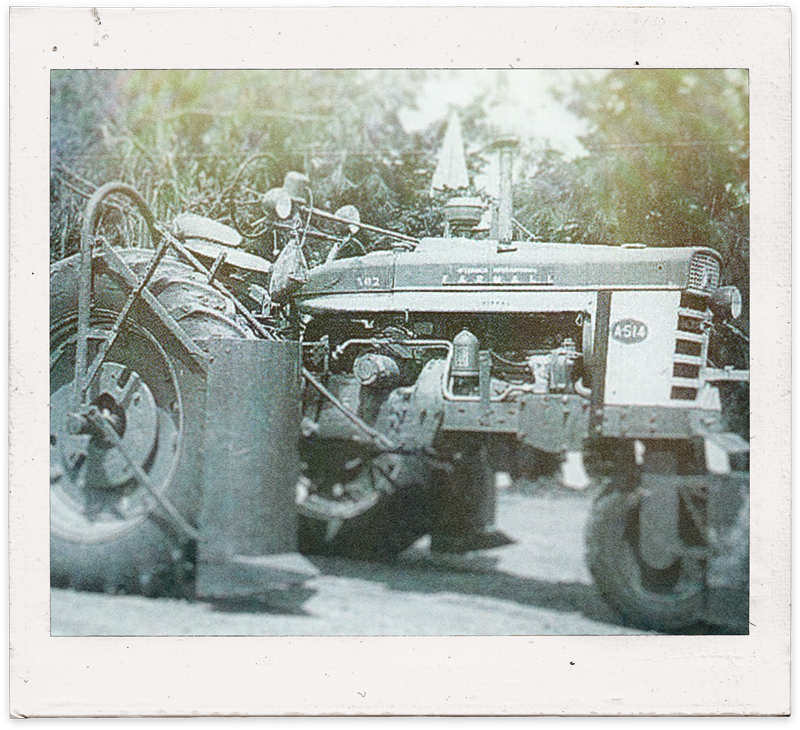
Peter Burey grew up as a farm kid before working for Case IH and eventually landing at Kenway and Clark, where he is general manager. Started by two former Case IH employees, Kenway and Clark is one of the largest dealerships in Australia with seven locations that all proudly sell Case IH and Farmall® tractors.
When Kenway and Clark established the company, farming in their area was just beginning. Irrigation had only begun to make the farmland usable in the 1950s. When Kenway and Clark opened in 1960, the tractors it sold were the first ones to till the land, plant the seeds and reap the harvest — and almost all those tractors were Farmall. They were the all-purpose machines those adventurous farmers needed to pave the way for agriculture in their area.
The ledgers from the early days of Kenway and Clark tell a story of their legacy, one that Peter takes great pride in. The names next to those Farmall models are the names of some of the most successful farmers in the area. Because of Kenway and Clark and Farmall, those farmers were able to thrive and carve new farmland that would feed and fuel many generations to come.
Interested in hearing more of the story or visiting the dealership? Learn more at kenwayandclark.com.au/.
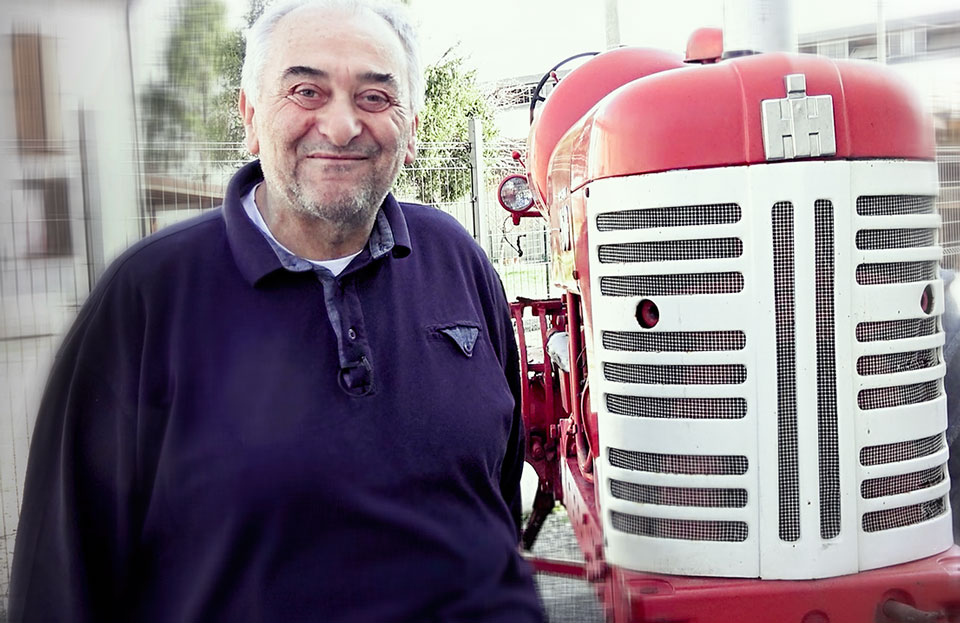
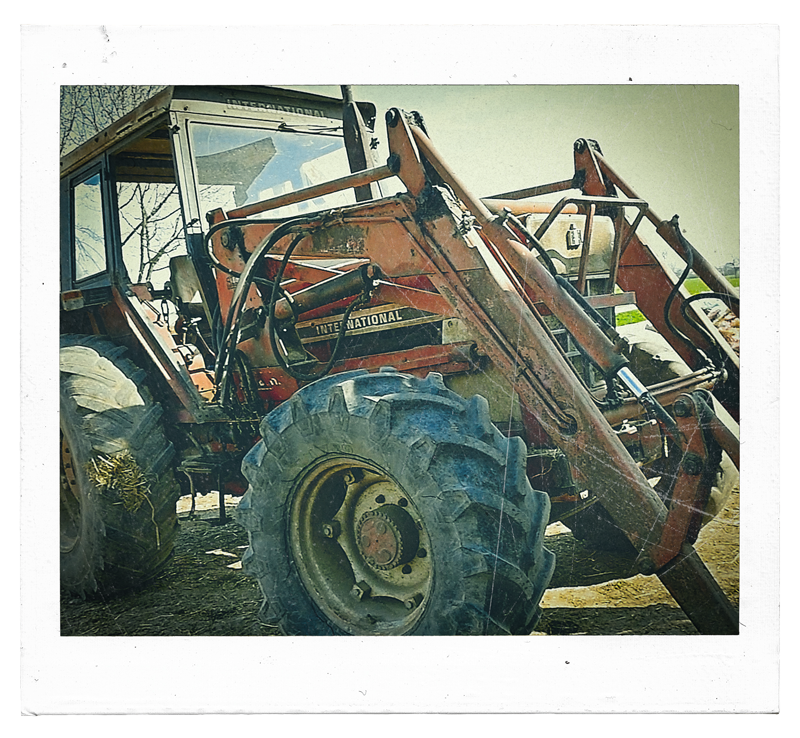
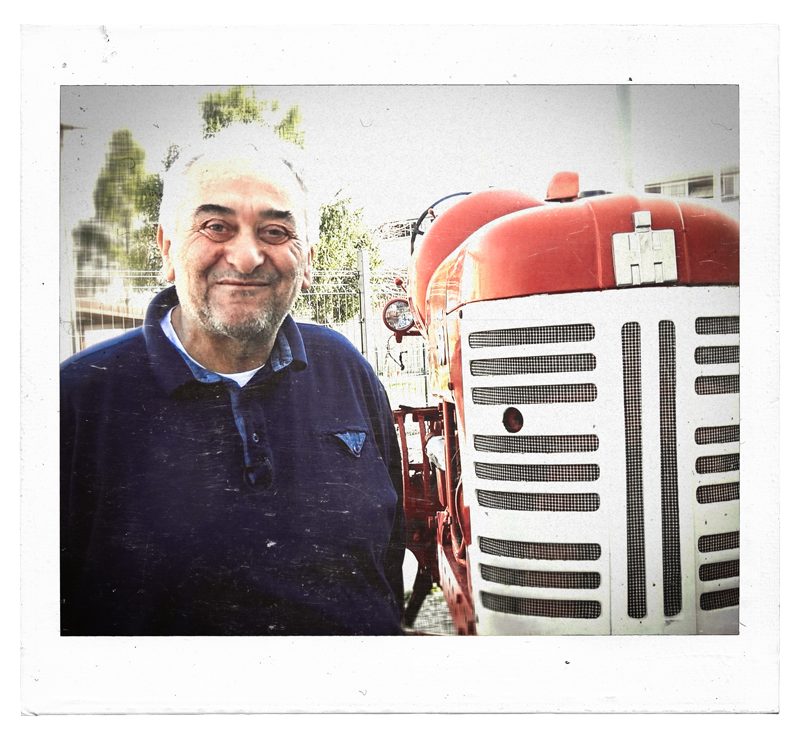
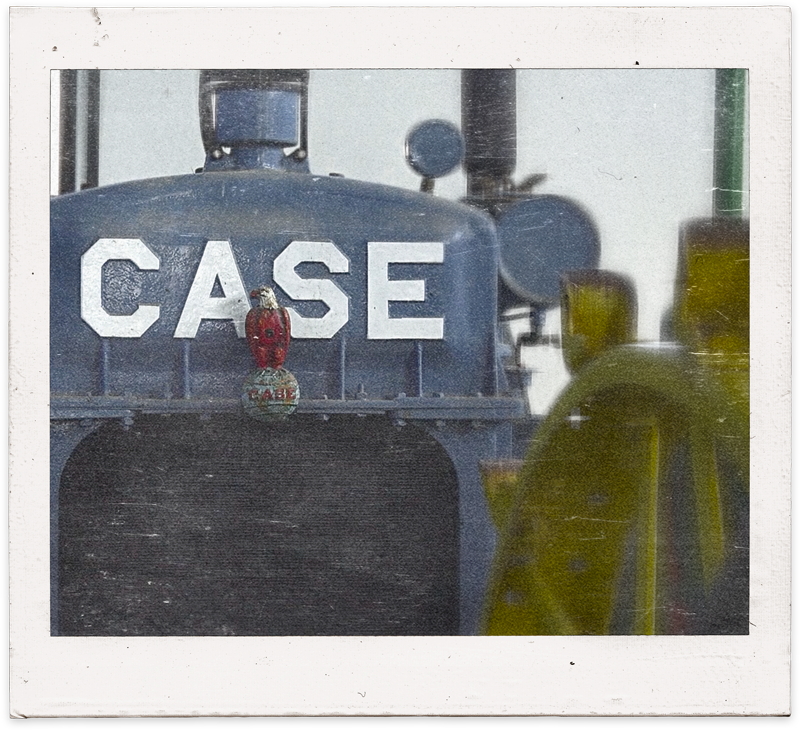
Alberto grew up as a farmer in Sant’Ilario d’Enza, an area between Reggio Emilia and Parma. His family farm harvests the fodder needed to feed the dairy cows that produce Parmigiano-Reggiano cheese. But more recently, he’s become a dedicated collector of Farmall® and other Case IH tractors.
The first Farmall tractor he purchased was a Model A, which he had imported into Italy. He had been collecting International Harvester machines since 1980. One of the sons of a local dealer, Mazzo Nino of Parma, visited his farm and told him, “I have an old four-wheel-drive 955 model that’s unused in a shed.” For Alberto, that conversation is when it all started, and he’s never rested in his mission to find more models.
Collecting a few more Farmall models over the decades, including a regular first-series model, Alberto’s collection has grown to over 200 vintage machines with models from the United States, Germany, France and Great Britain. This has been possible by the network of collectors all over the world that helps him find rare machines that enrich his collection.
His goal is to one day open a museum dedicated to Case IH machines, with Farmall tractors at the forefront — because he knows an icon when he sees one.
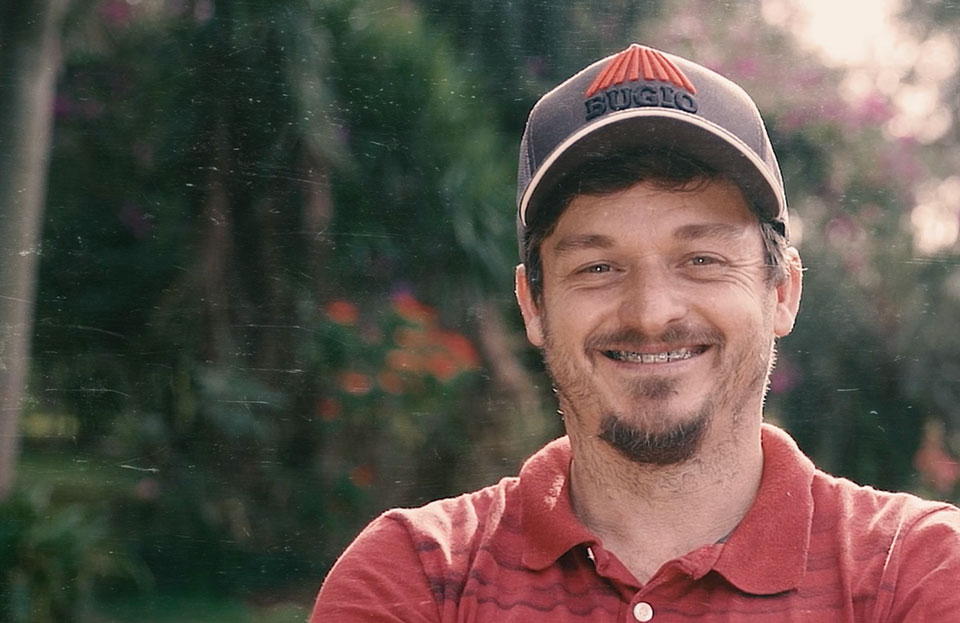
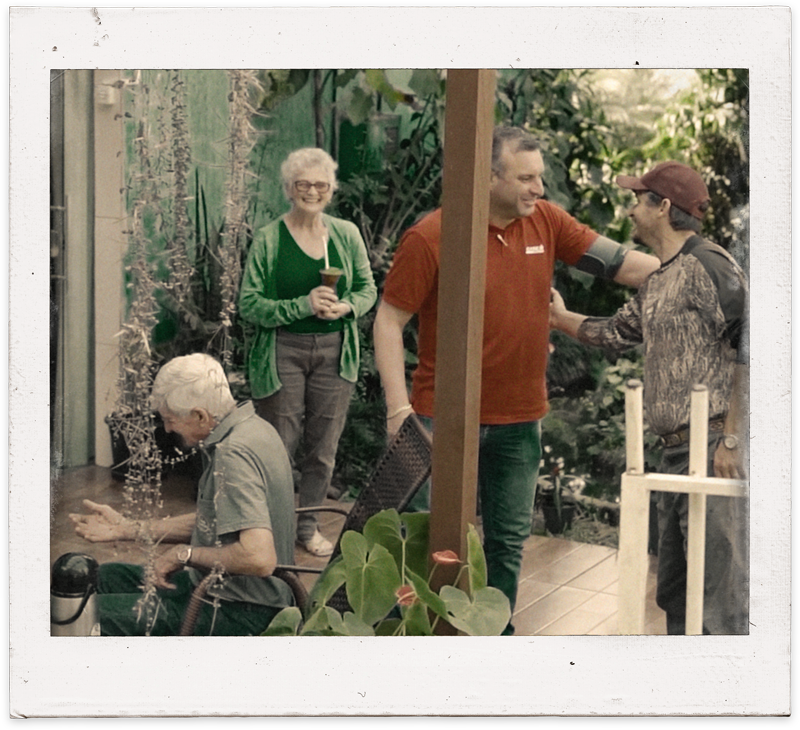
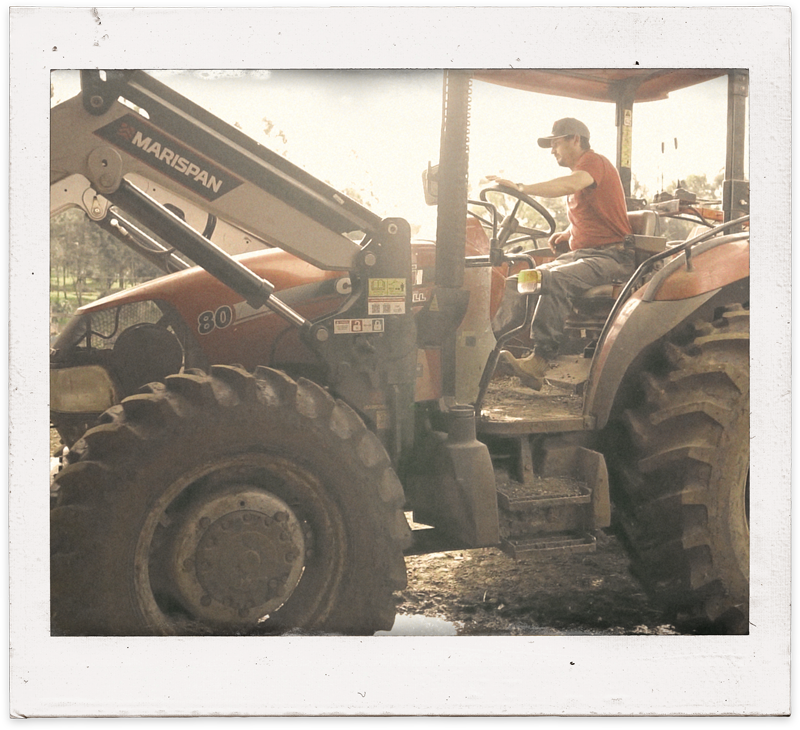
Farmers across the globe ask a lot of the same questions, including “Is it time for another tractor?” For Raul and his operation, the answer was yes.
Raul took over the farm from his father 10 years ago. Their operation is mostly driven by milk production and dairy cows. Graduating as an agronomist and then moving back to take over the day-to-day operation, Raul noticed they had a demand for another tractor — their Farmall® 80 tractor was doing a lot, but they could use another workhorse.
Loving their Farmall tractor and the Case IH brand, they went back to their original dealer to get a machine that could provide the same comfort and reliability for all the odd jobs around their dairy farm. The Farmall 100 became the obvious choice.
Soon after they brought it home, work that used to take a week was cut down to just a few minutes. These two versatile and reliable Farmall tractors let Raul get more done. And because he could get more done, that meant more calves, more milk and more production in general.
His operation doesn’t need another tractor yet, but because his bond is so strong to the Farmall brand, Case IH will be at the top of his list when it is time.

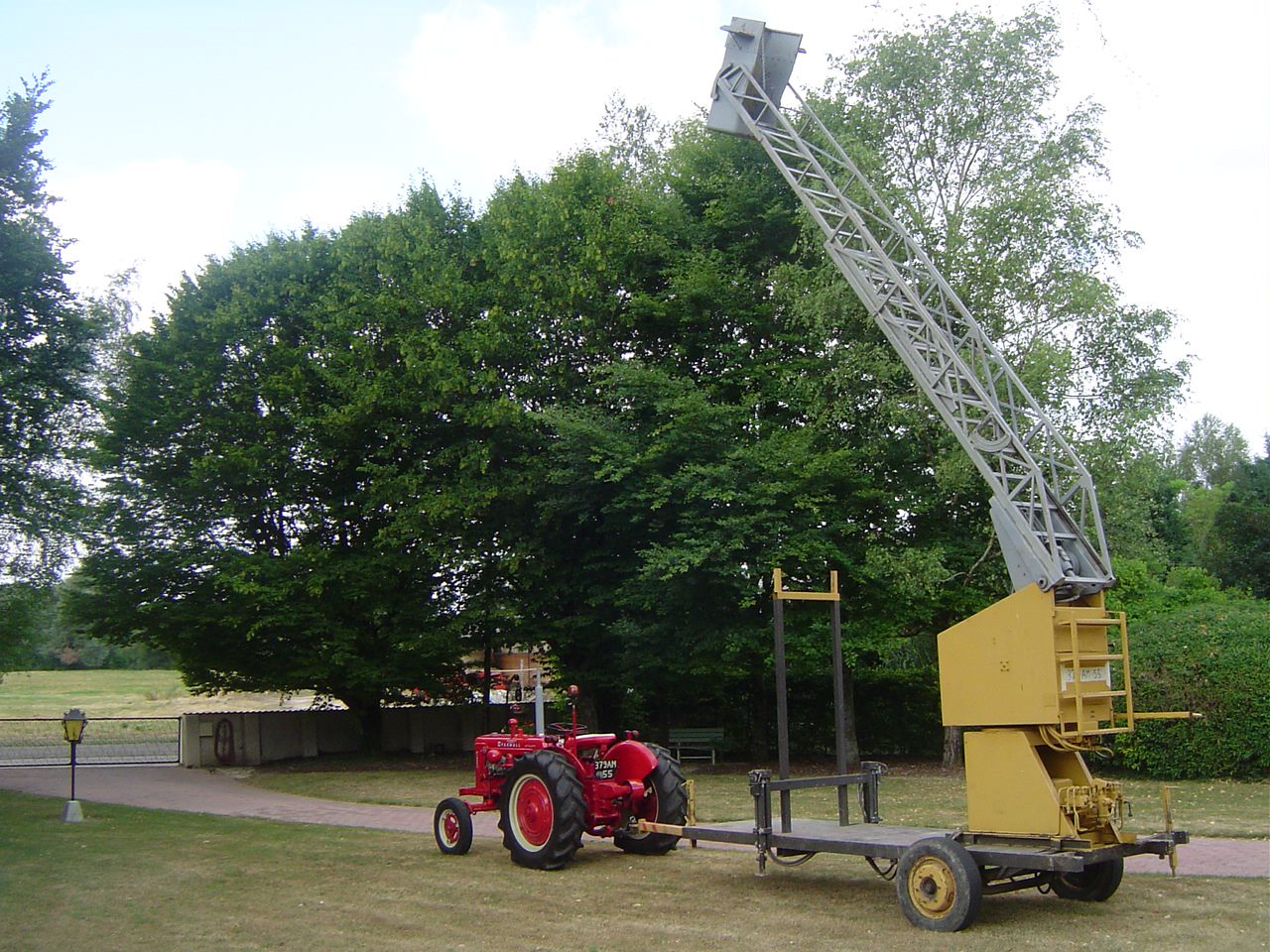
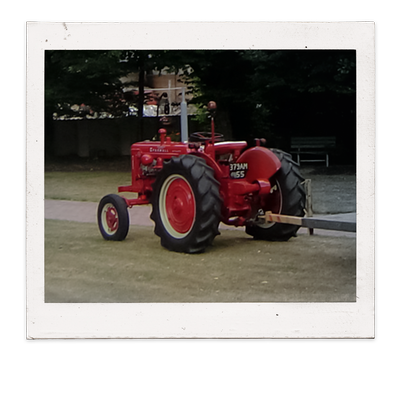
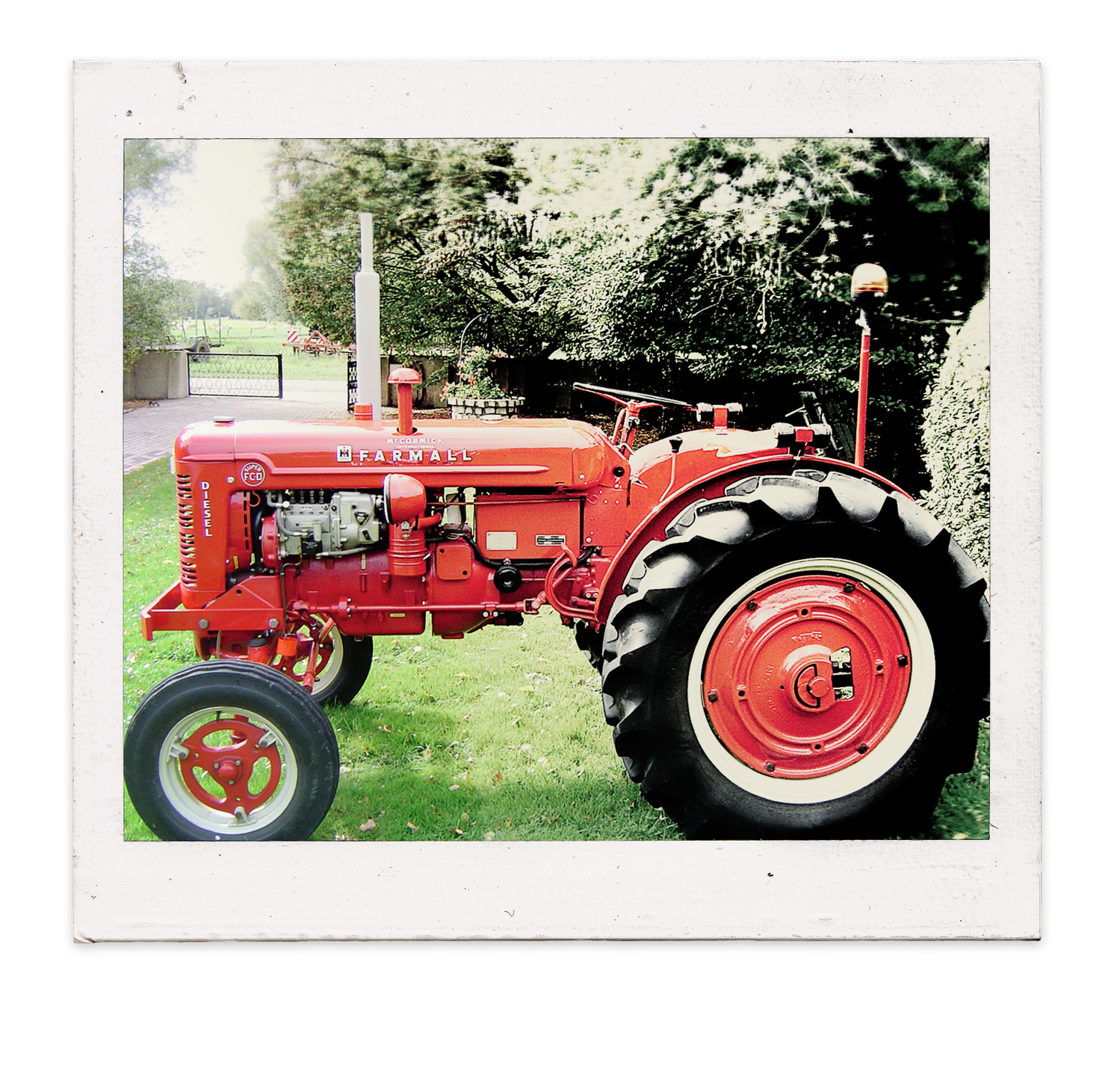
Farmalls have been changing the world for generations. Nobody knows this better than Gérard Renneson, whose Farmall A series tractor has been instrumental in helping the Renneson family since 1955.
Gérard can’t remember a time when his grandparents didn’t trust in Farmall. Up until the mid-20th century, the Rennesons used horses to raise livestock and cultivate cereals on their 60-hectare farm in France. The introduction of the Farmall was a game-changer: not only did it make planting and harvesting easier, but it also helped the Rennesons transport firewood during cold winter months.
Just as the arrival of a Case IH Farmall was a special family memory, so was the moment when the Rennesons gifted the tractor to Gérard in 1992. For Gérard, who works in agricultural machinery, the process of restoring and using the tractor has been both a privilege and an honor.
Today, Gérard uses his Farmall A tractor much as his grandparents did — to reliably and efficiently transport load after load of firewood.
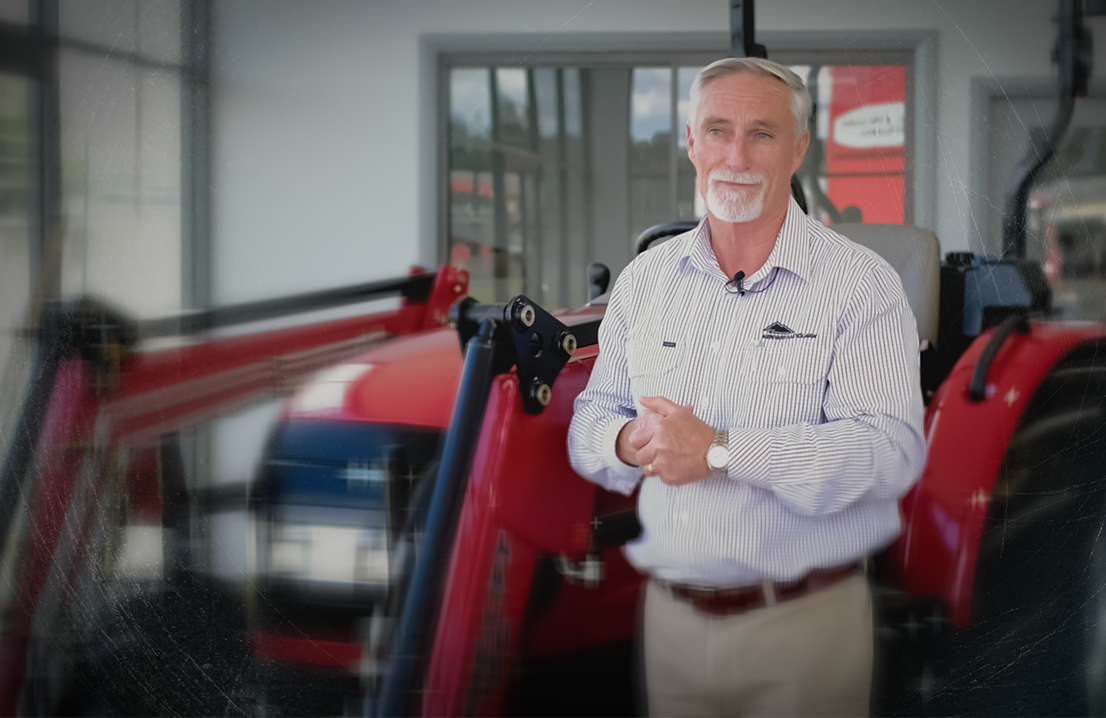
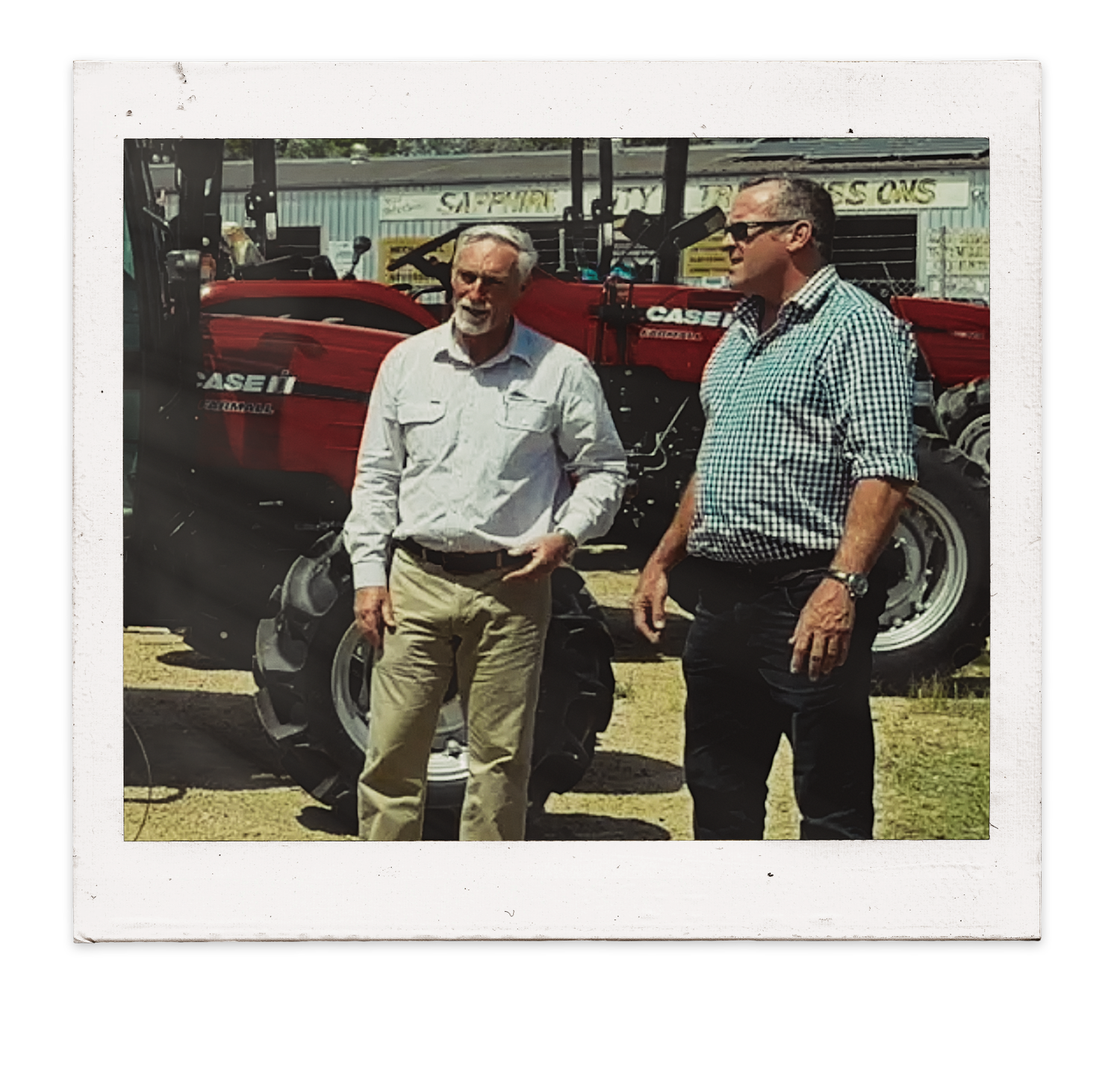
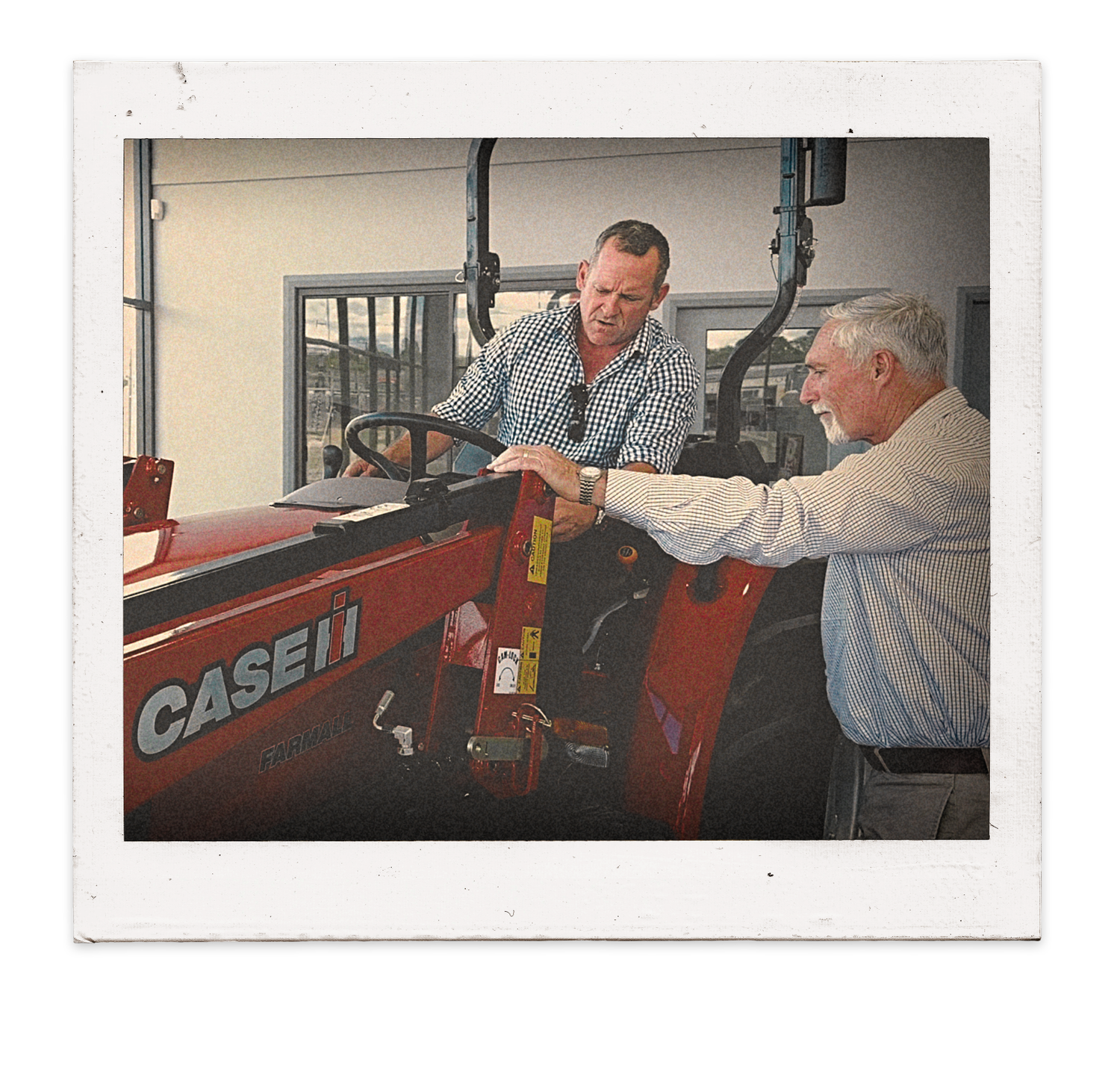
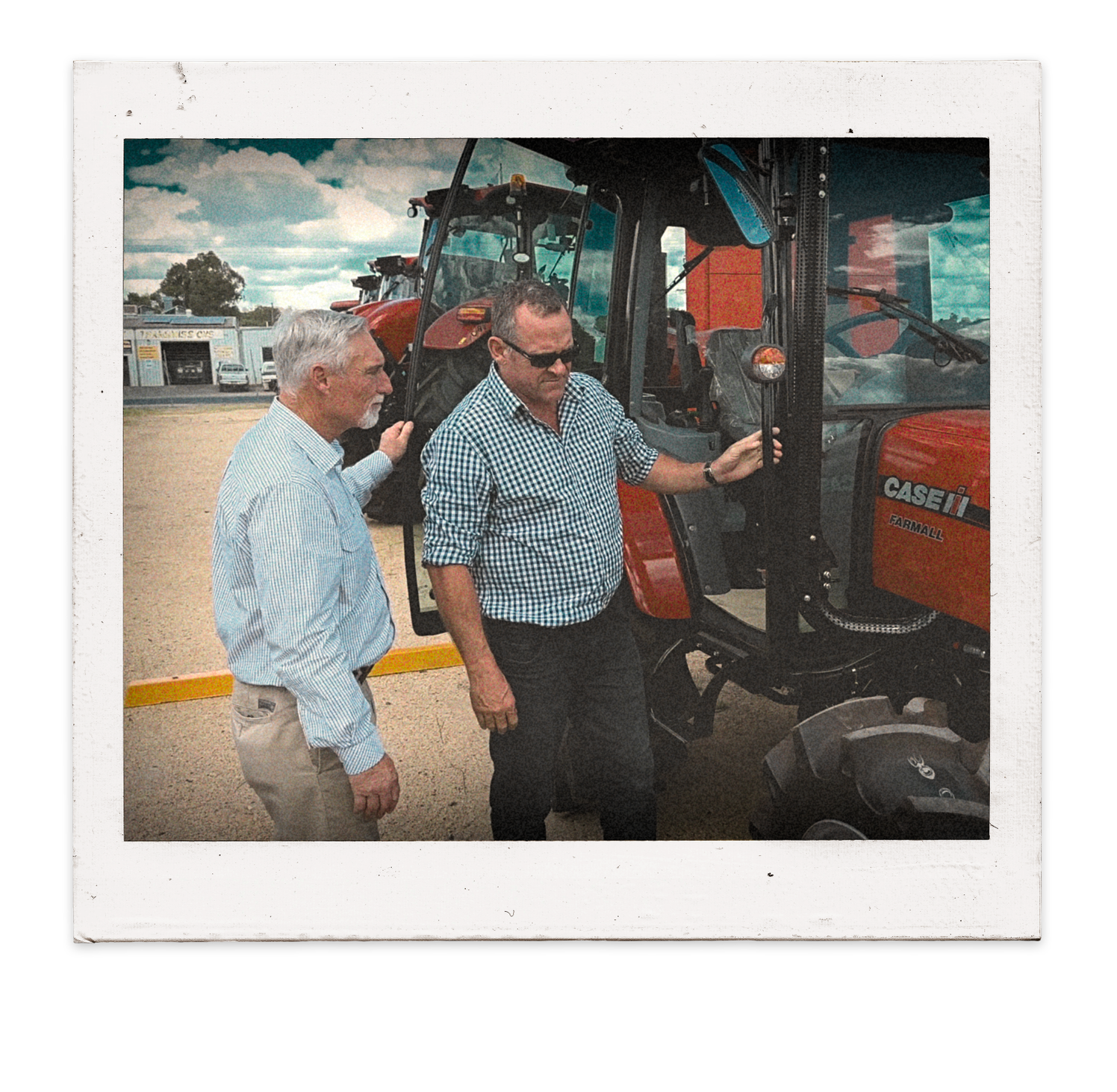
For Paul Harmon at Kenway and Clark in northern New South Wales, Case IH Farmalls are as much a part of life as they are a business staple.
Established more than 60 years ago, the Australian equipment company first served as a reliable Farmall dealer under International Harvester for decades before evolving alongside the brand to become a Case IH dealer in the 1980s.
In that time, Harmon has seen firsthand how important Farmall utility tractors are to growers of all stripes. After trying competitive brands, Kenway and Clark clients often switch to Farmall, citing their power, quality of product, rugged durability, robustness and versatility — in short, nothing else packs so much utility in a single, compact tractor.
After dealing Farmall tractors for decades, Harmon is excited to celebrate the centennial of the Farmall with farmers, community members and Case IH enthusiasts of all kinds. And while Kenway and Clark is just one part of the larger Farmall story, Harmon hopes their dealership will have a part to play in the Farmall story for years to come — perhaps through the bicentennial and beyond.
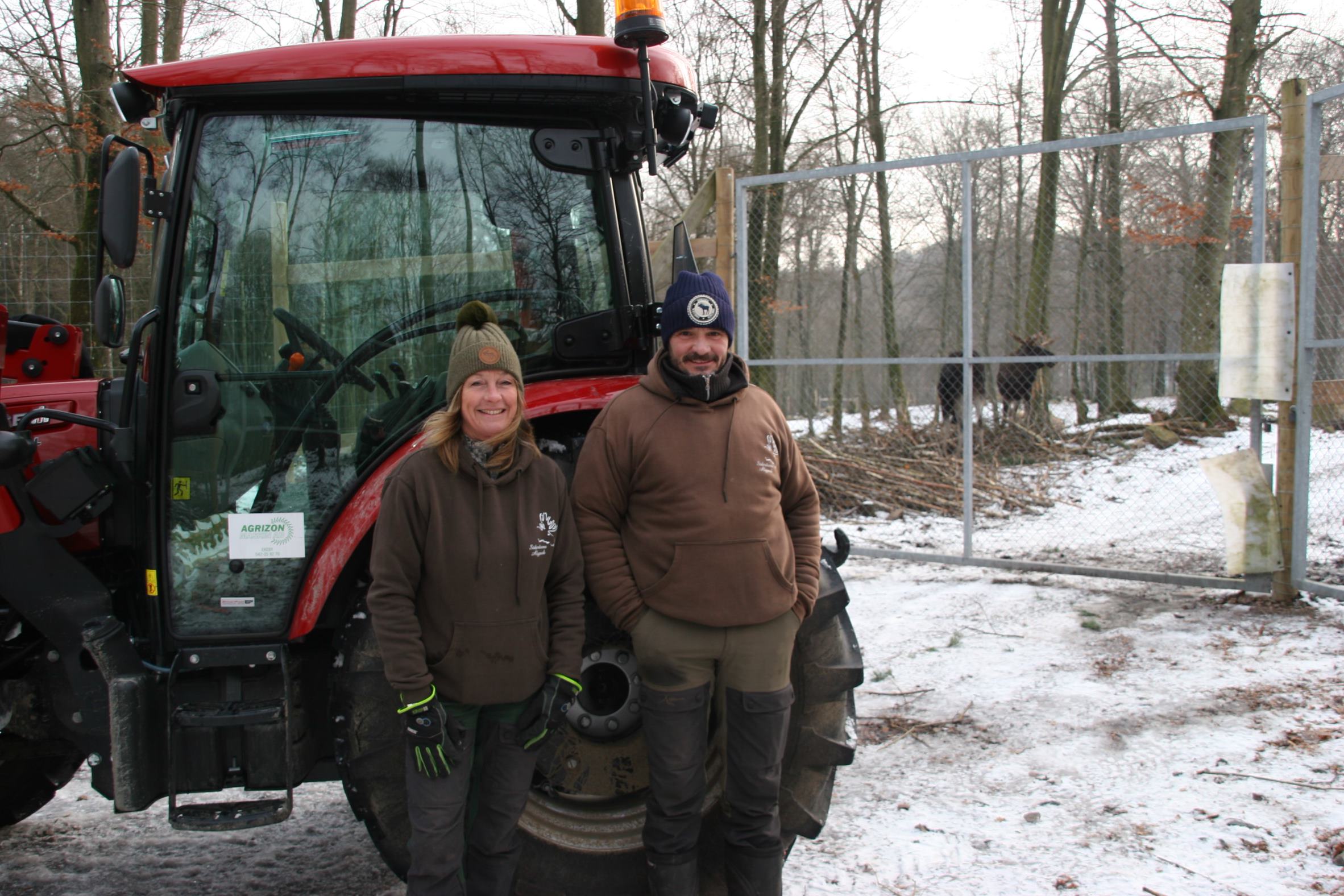
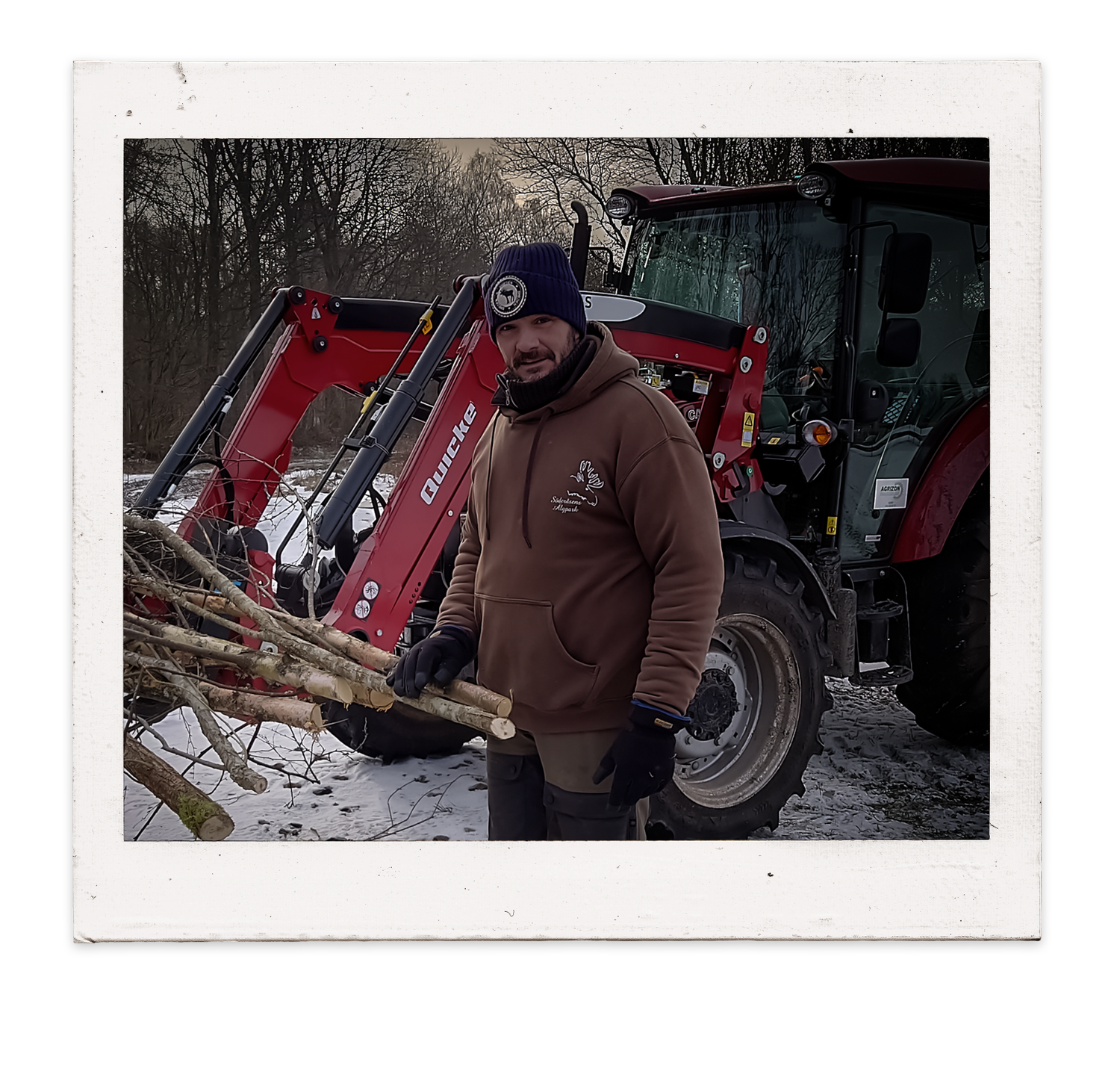
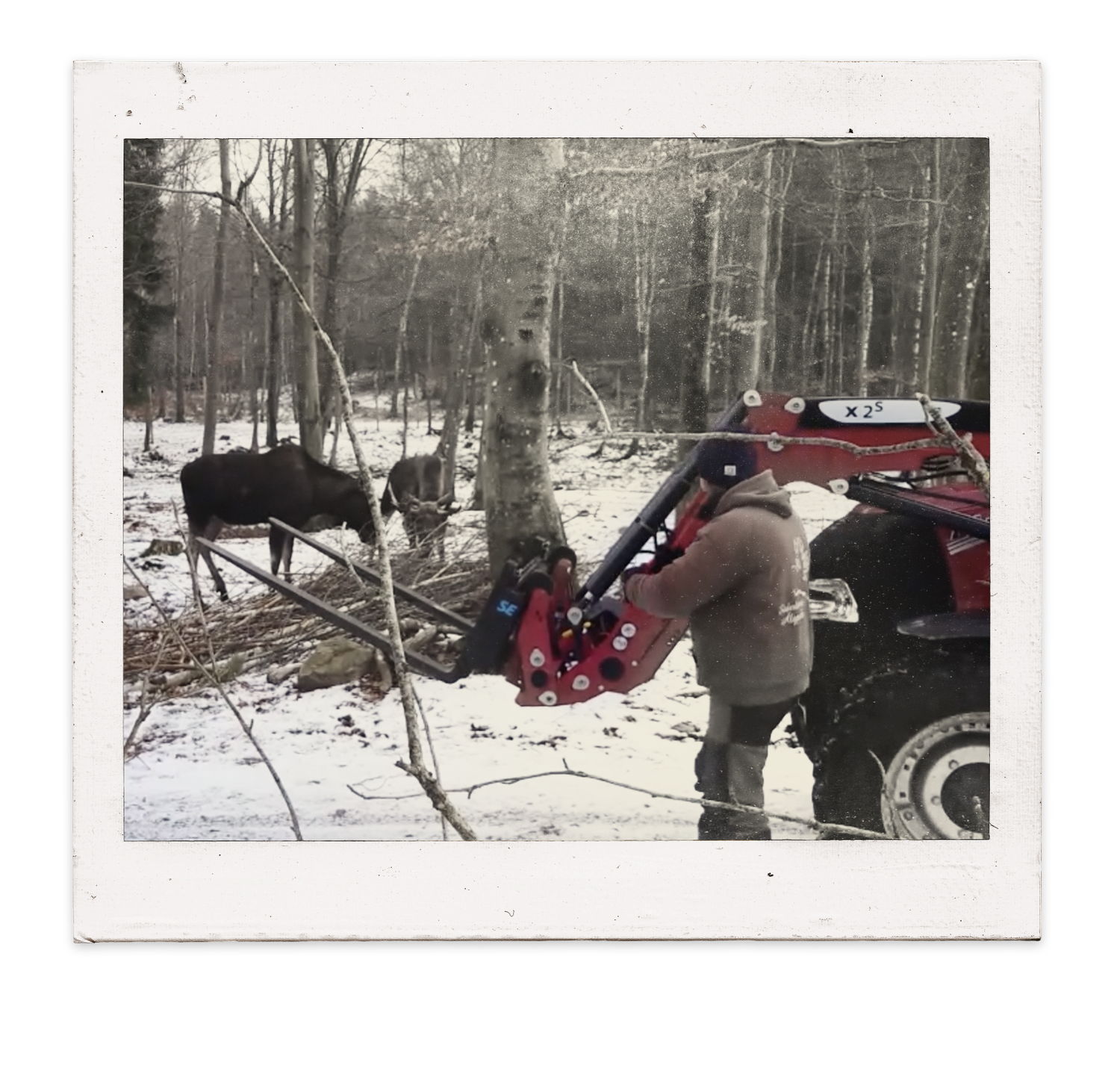
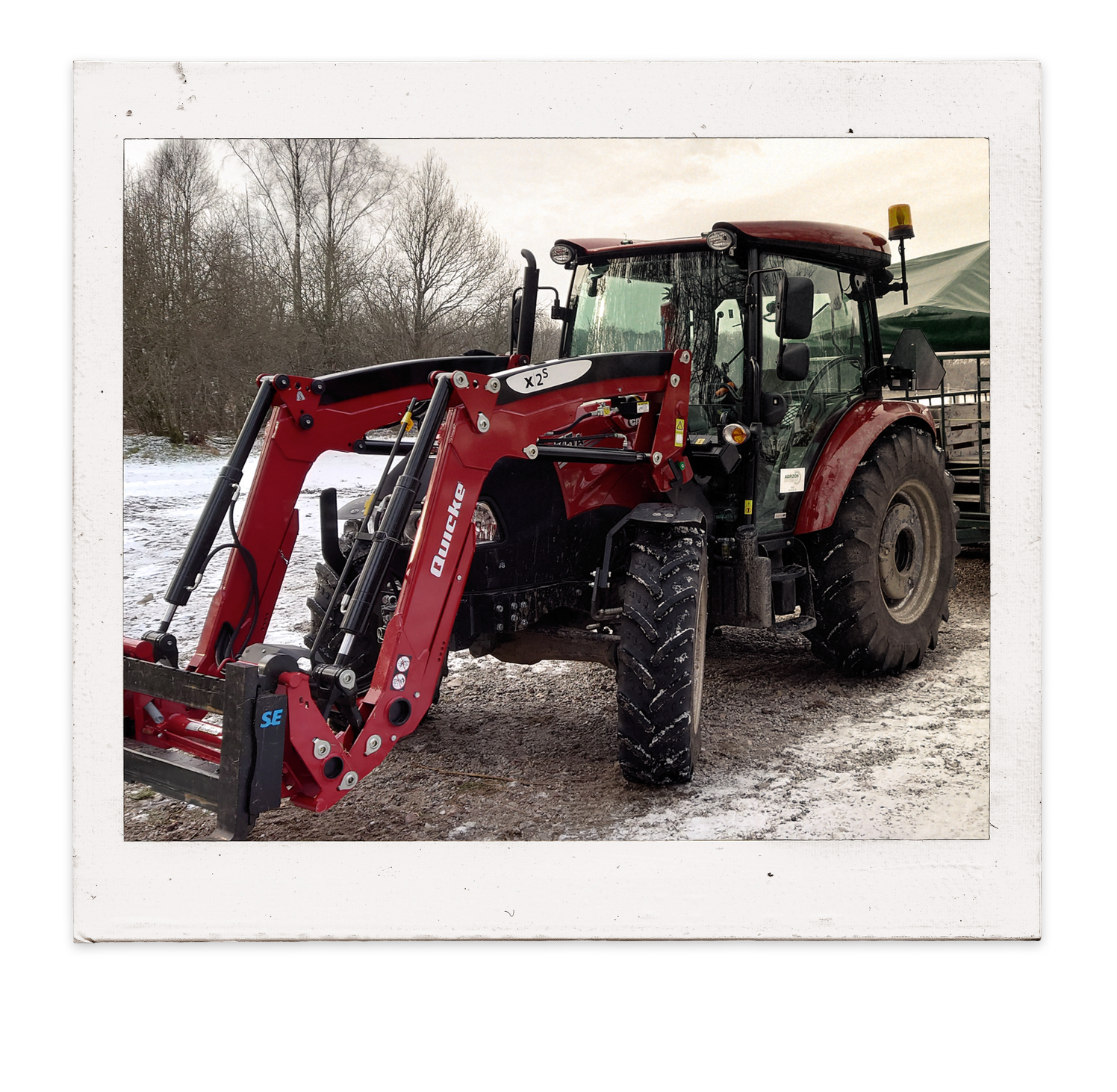
When people hear the word “Farmall,” a few things come to mind — reliability, rugged performance, and of course, the color red. For the Lind-Mærsk family, however, Farmalls are known for something else: their efficiency at running a thriving moose park.
At the Söderåsen Ridge in Scania, Sweden, the Lind-Mærsk family recently invested in a Case IH Farmall 75A utility tractor to develop a beautiful habitat for six adult moose. With the help of their tractor, the park has seen between 8,000 and 9,000 visitors this year alone, with plans to host 20,000 guests by the end of the year.
It wasn’t always this way. Three seasons ago, the Lind-Mærsks relied on other tools to get the job done. But by November of 2022, the park had outgrown expectations. Feeding moose in tight spaces was becoming a hassle, as was cleaning their vast enclosures. To keep the habitat running, the Lind-Mærsks needed an easy-to-operate tractor that could simultaneously handle narrow turns and wide spaces while also being able to transport guests across various park areas.
Thankfully, the Farmall 75A fit the bill. With its compact size and ease of handling, the Lind- Mærsk Farmall is helping Söderåsen Moose Park run smoother than ever before — and with the excitement of a newborn calf recently delivered in May, their appreciation for Farmall runs even deeper than before.
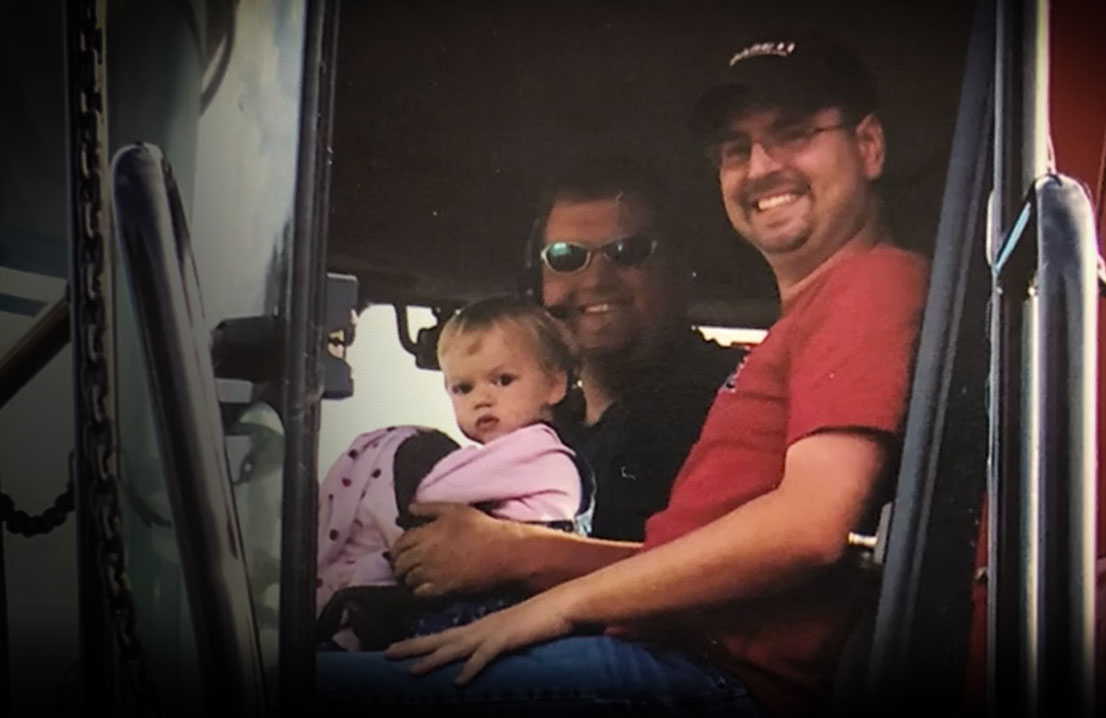
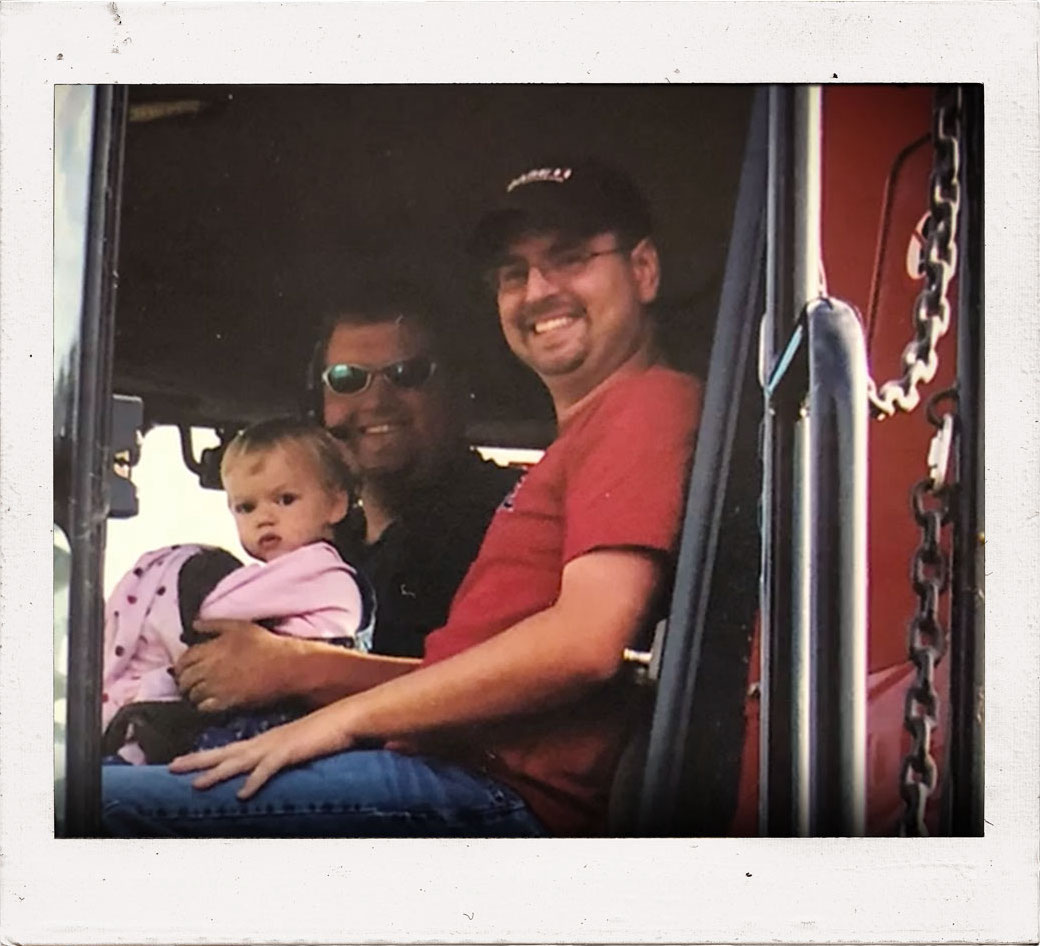
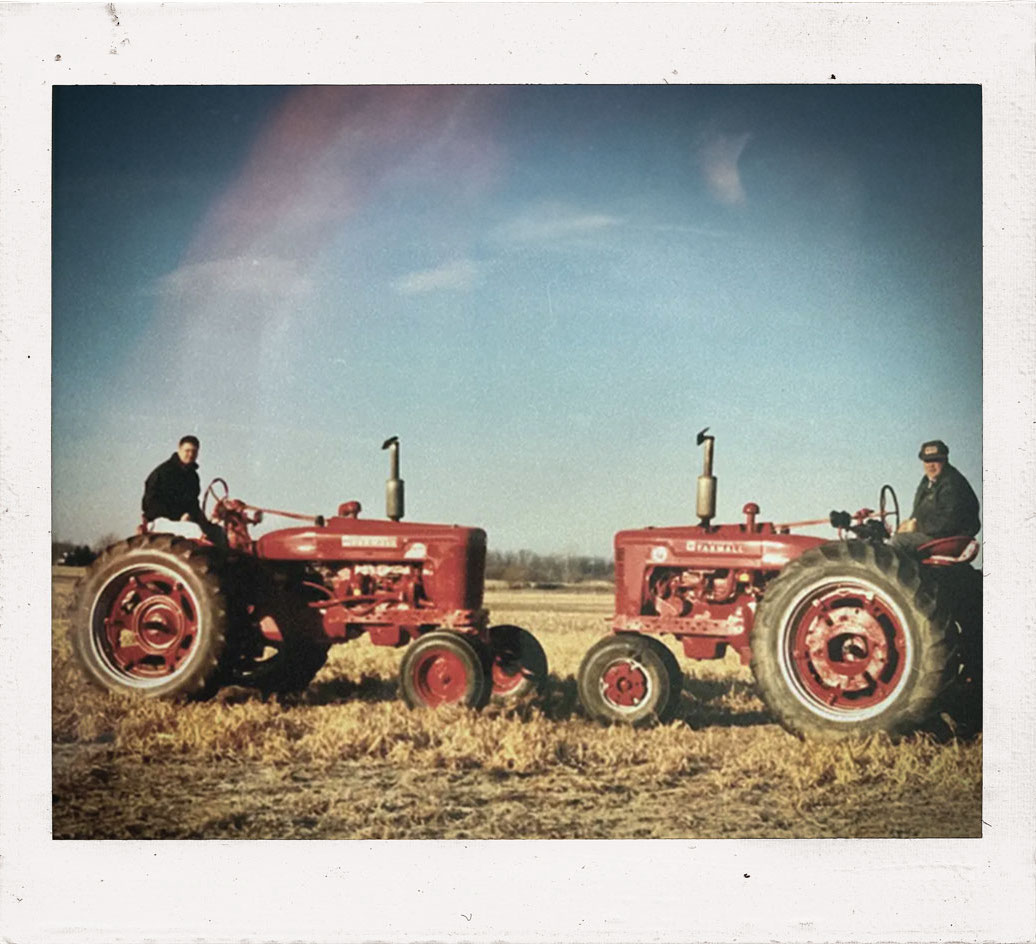
Joe grew up on a diversified hog, cow, corn and bean farm in northern Indiana. Today, Joe still lives and helps around the farm part time with his family while working full time as the Tractor Marketing Lead for Case IH North America. As you can imagine, Farmall is both a personal and professional passion of his.
He has a lot of memories growing up on that farm, and many of them were while he was sitting on top of Case IH equipment. His family had a variety of Farmall tractors to choose from to get work done. That included a 1953 and ’54 Super M, a ’54 Super M-TA, an 856, a 1456 and a 1466. There’s maybe an extra M in there somewhere — it’s hard to keep track over so many decades, but most of those tractors are still on the farm.
Joe’s fondest memories come from learning how to drive on his grandfather’s 1953 Super M. His first time driving it by himself was while he was clearing a fencerow. His dad and grandfather stood there and watched with pride. Joe has a vivid memory of that day and could take you back to the same spot on his farm. He also knows he’ll watch his 13-year-old son drive on his own too, most likely on top of that same Super M. That’s four generations on one tractor — a testament to the dedication of Joe’s family to farming and the longevity of their Farmall.
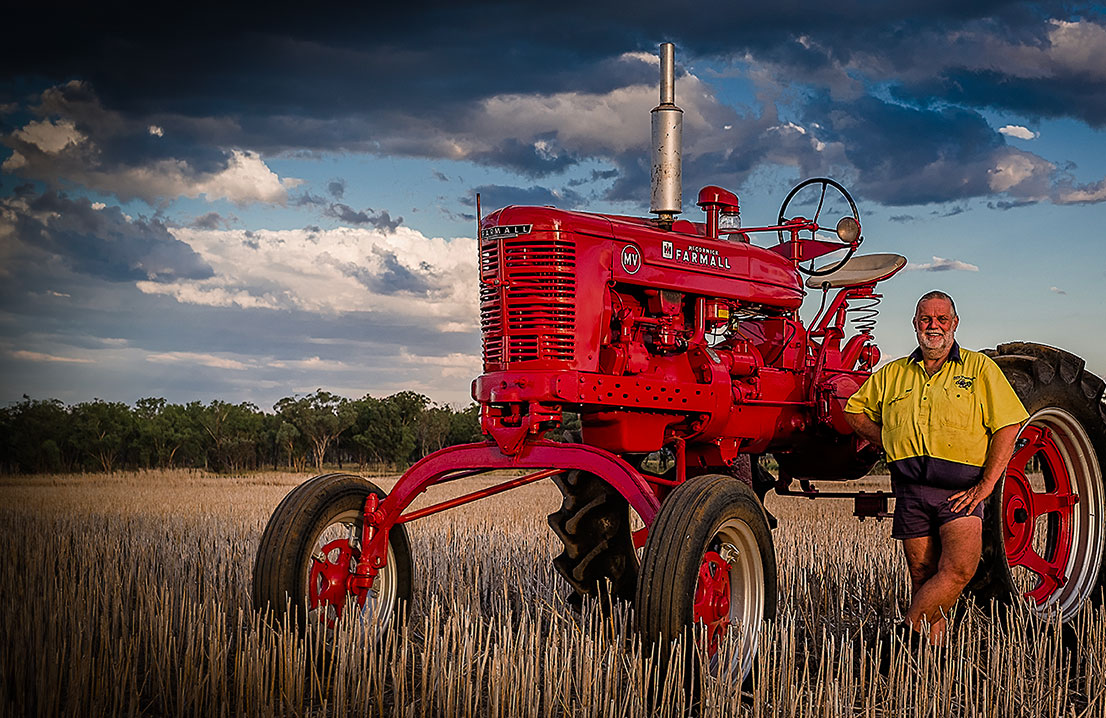
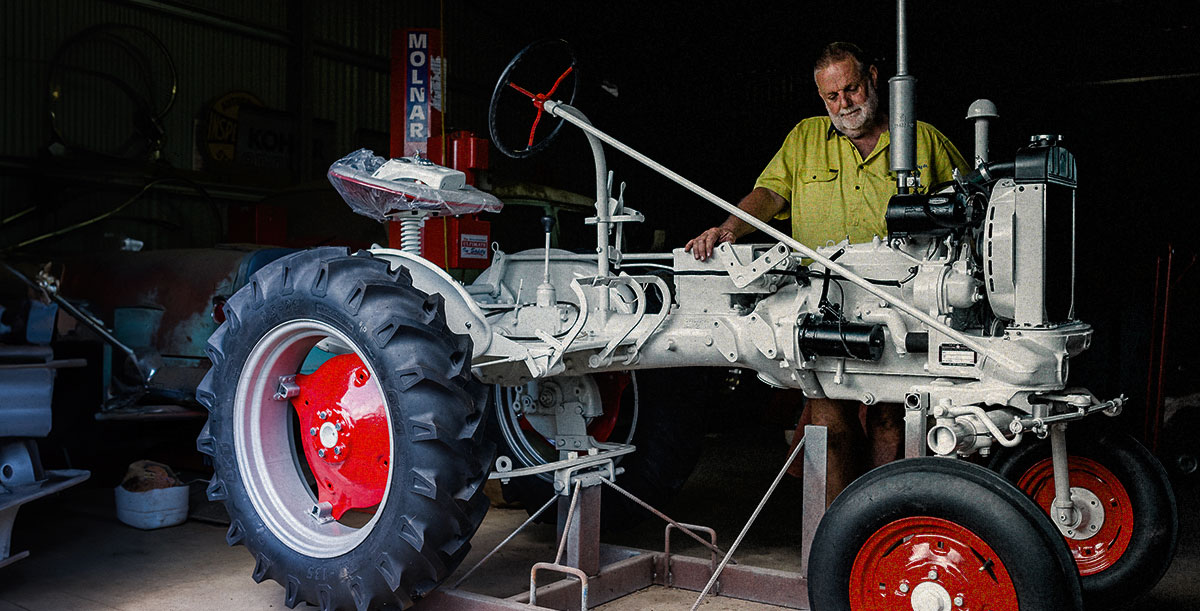
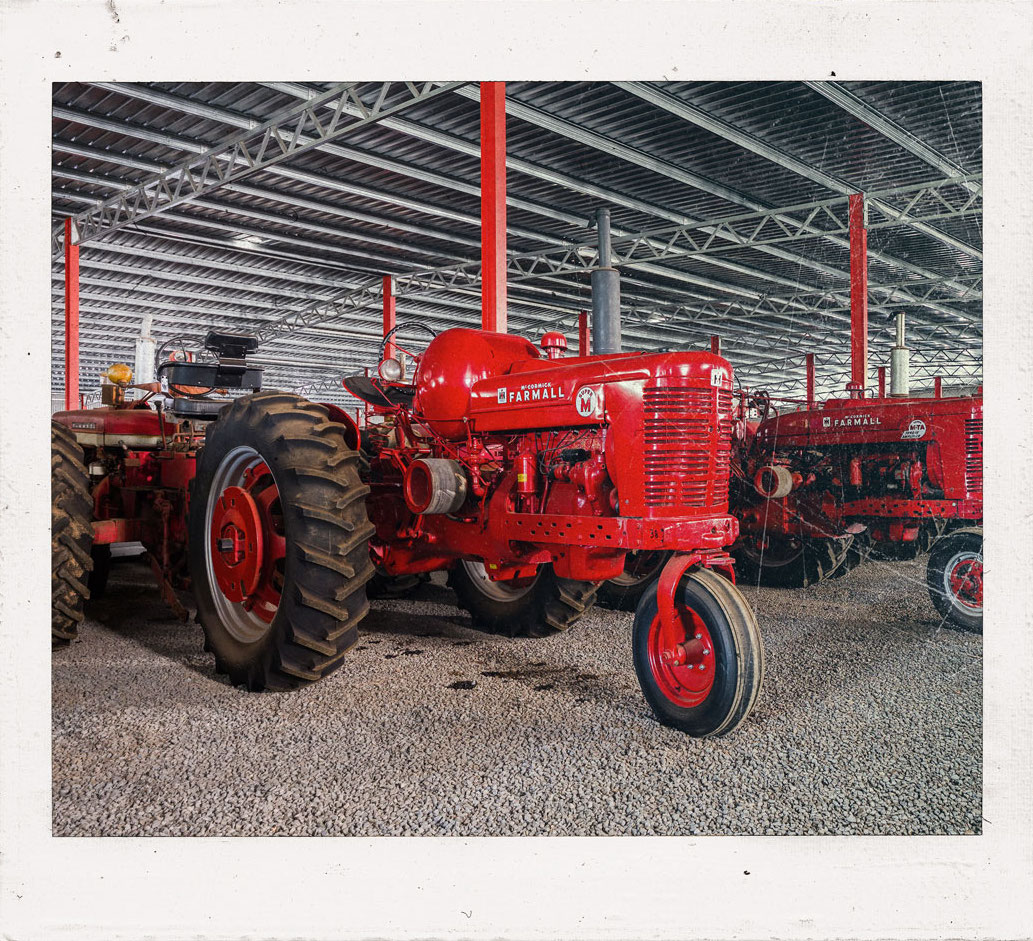
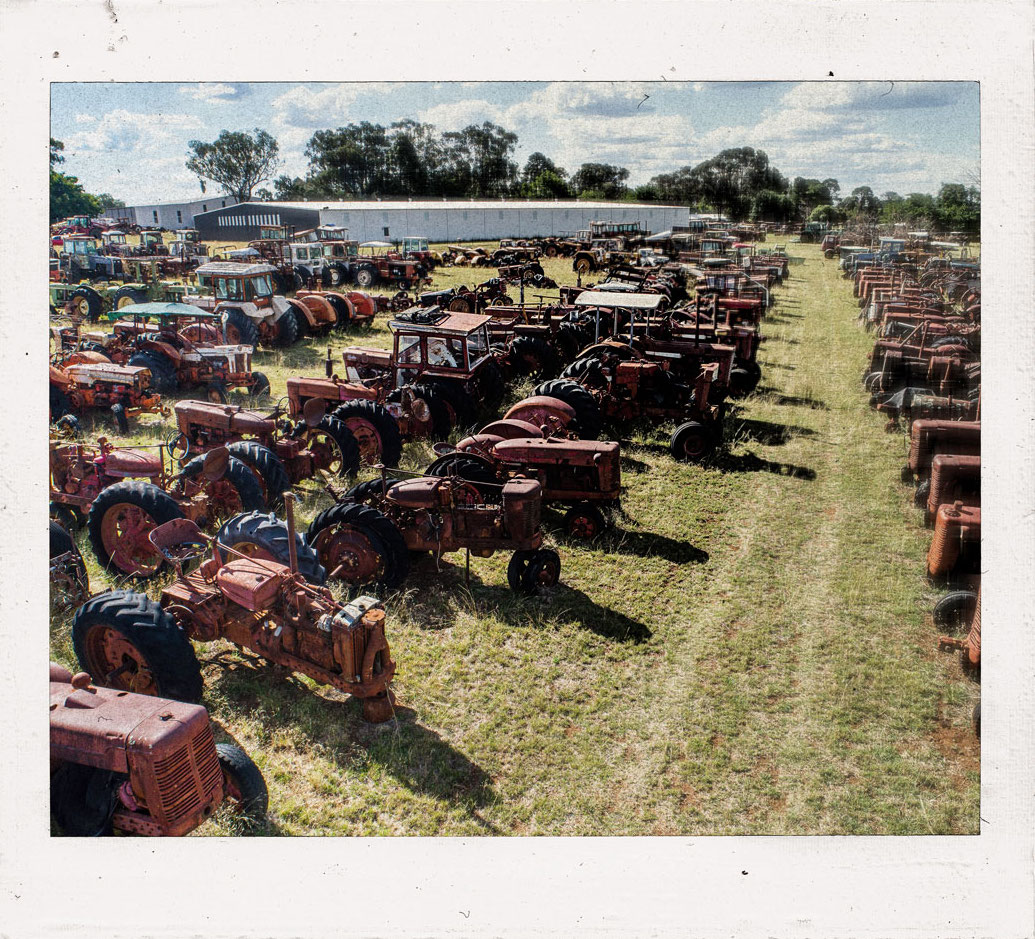
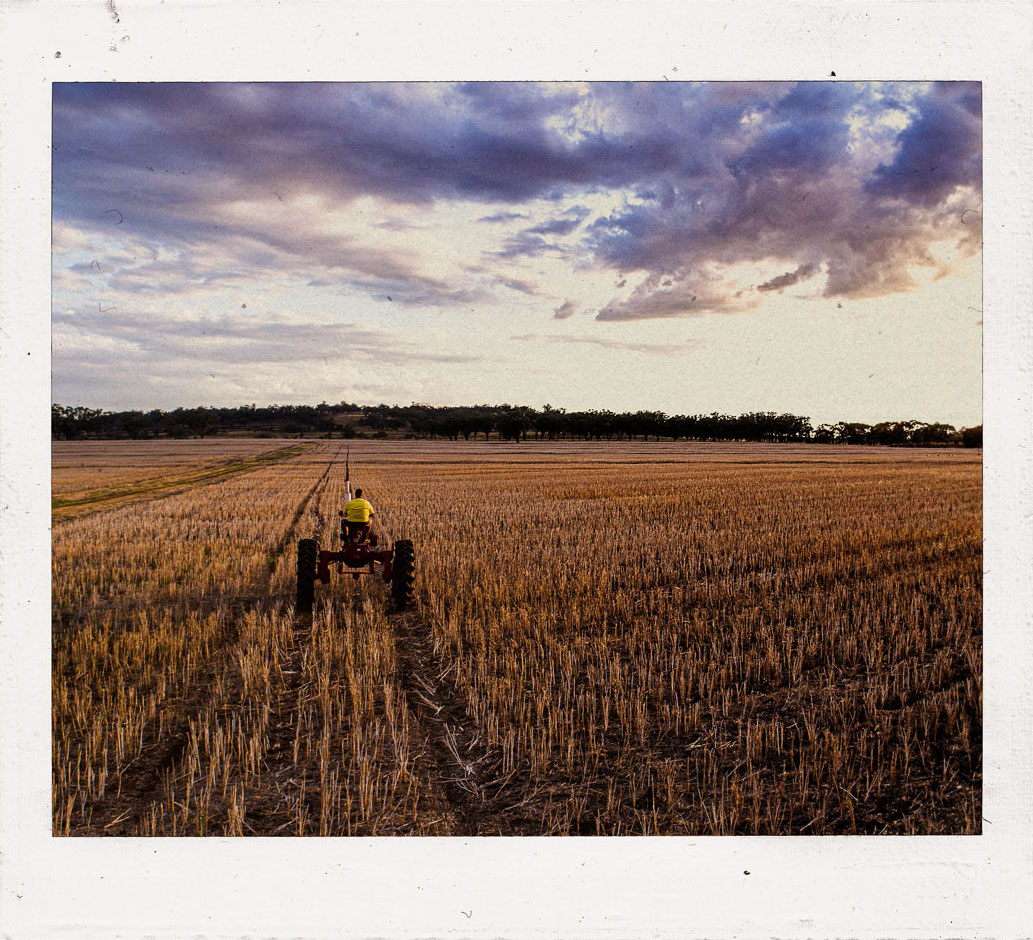
Tom Horwood’s enthusiasm for Farmall tractors began quite naturally. As a teenager, he was an apprentice mechanic with Inverell Harvester, his local International dealer. After seeing firsthand the enthusiasm Farmall owners showed for their tractors, his own interest was sparked. Still just in his 20s, he started his own collection.
“I worked on a lot of Farmalls during those years,” he says. “I just developed a real fascination for them. They have such a rich history, so when I started to collect tractors, they were high on my list.”
Today, Tom keeps his tractors at his family farm in Inverell, where he also runs Rural Wrecking Co Pty Ltd, a tractor buying, dismantling and spare parts specialty business. His collection numbers in the hundreds, and includes many old Farmalls — 40 of them in fine working order. The oldest model in the collection? A Farmall Regular from the 1920s.
Tom is looking forward to showing off his collection at the centennial celebration in Inverell. “Collecting just gets into your blood,” he says. “I won’t be stopping any time soon.”
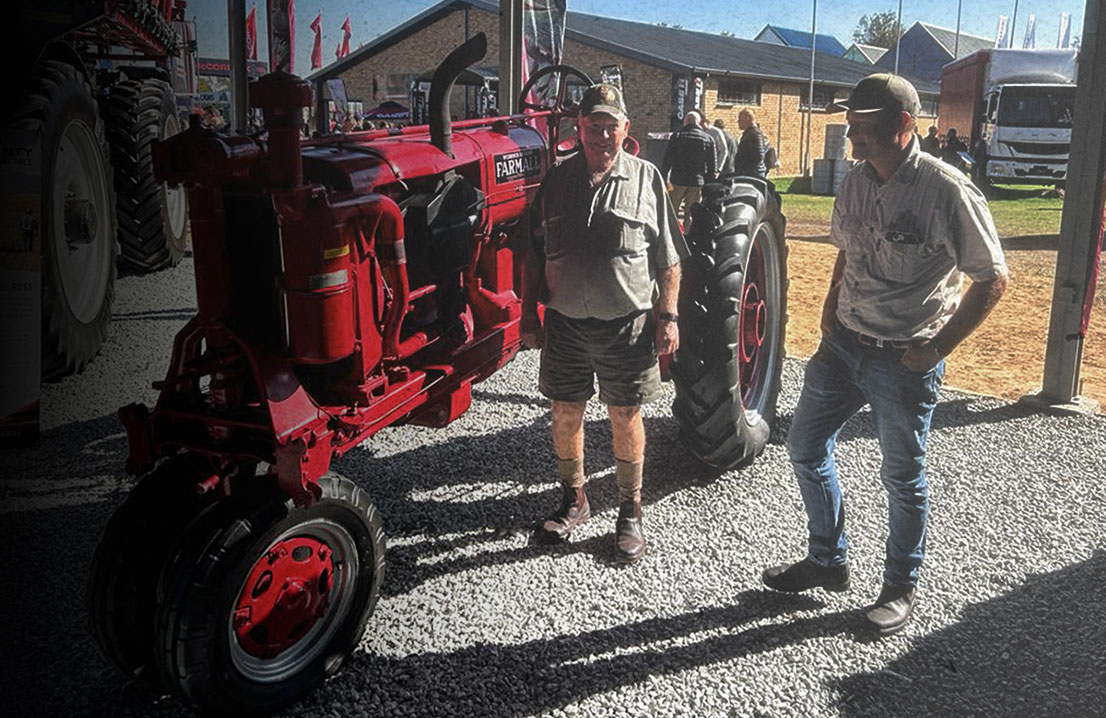
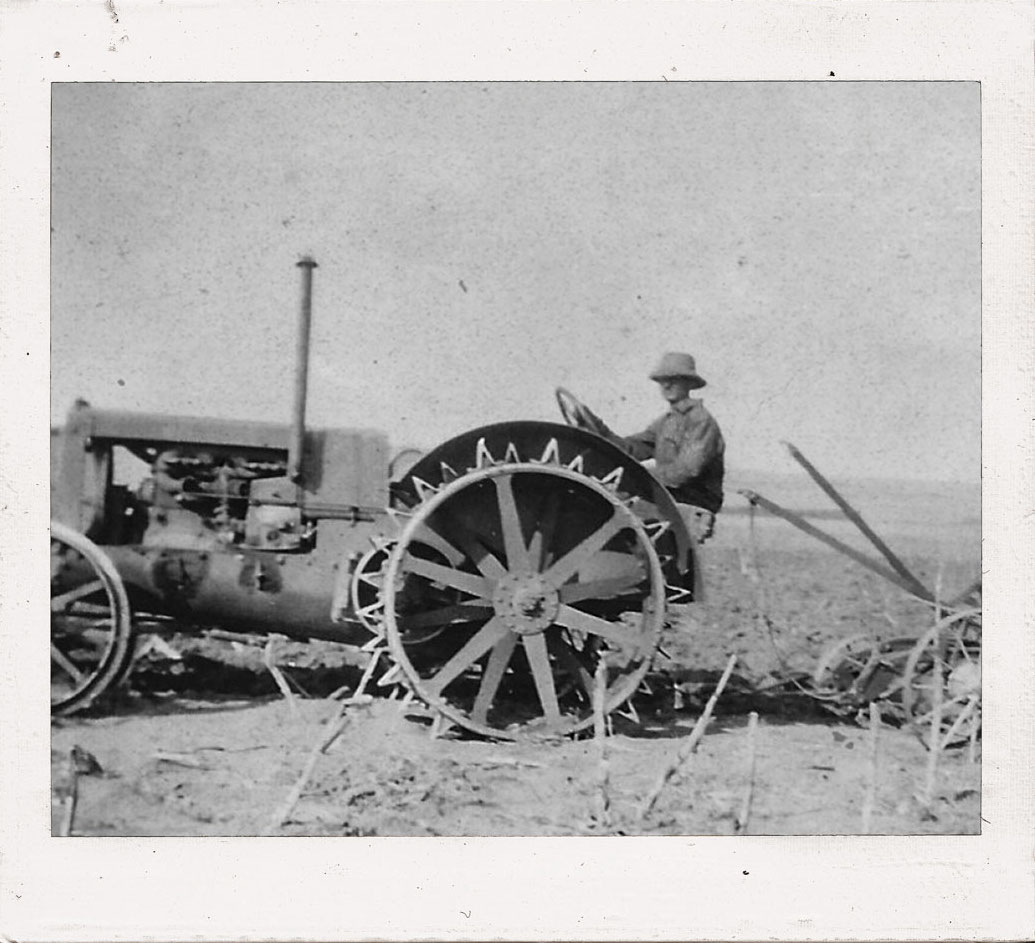
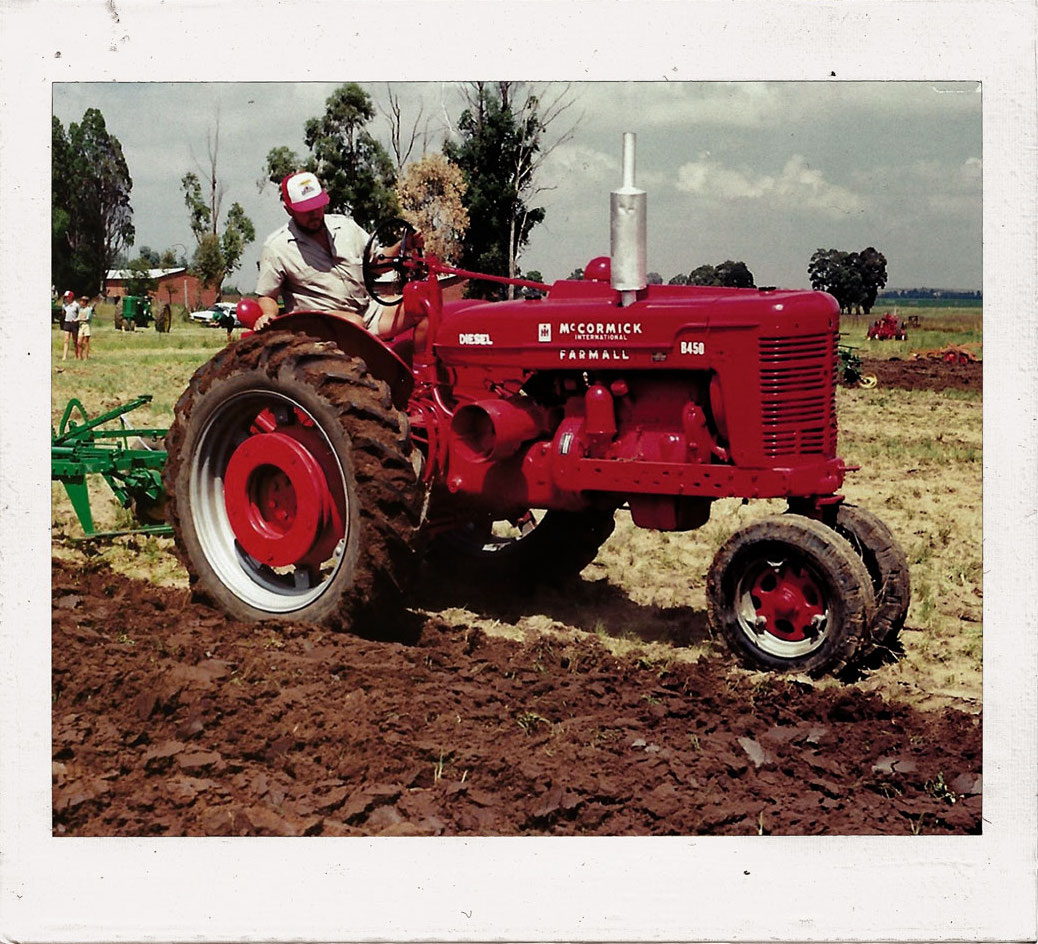
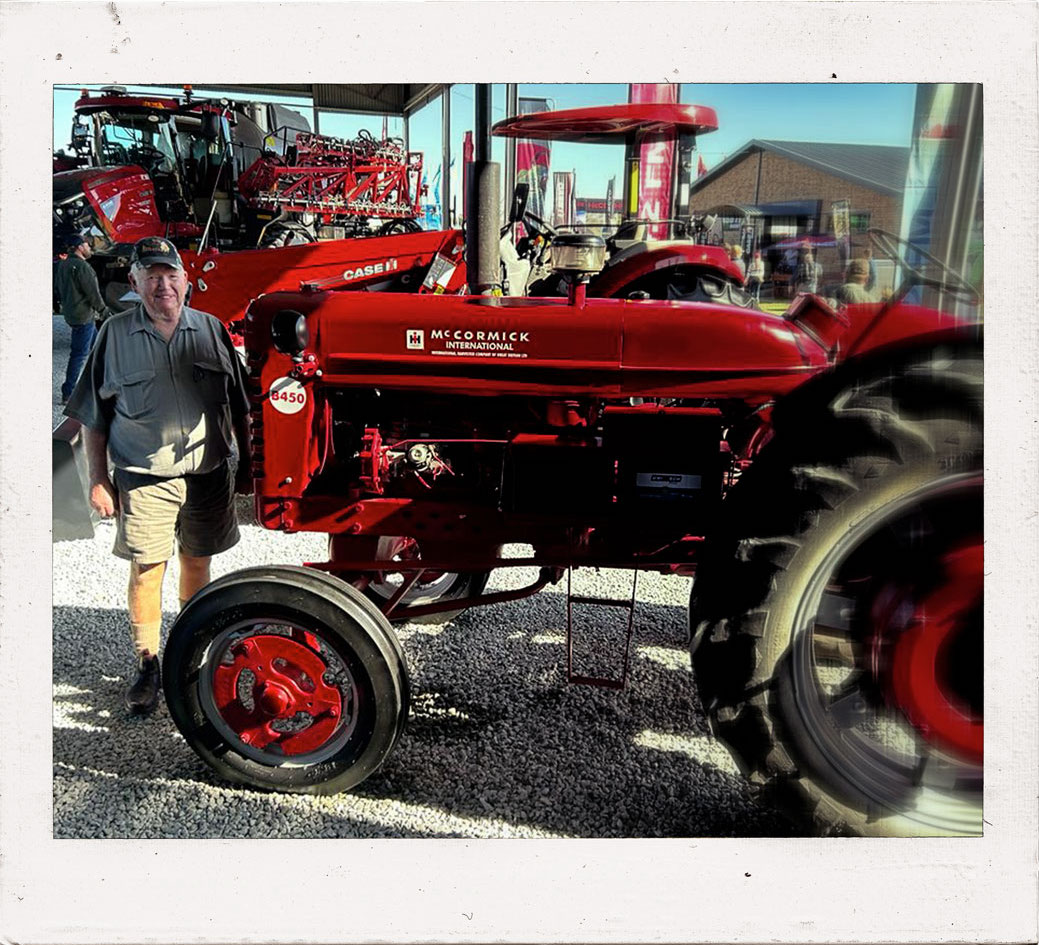
Farming runs deep in my family’s history. I’m the third generation of Kerslakes to tend to Val Farm, a legacy that began when my grandfather, Alfred Kerslake, acquired a portion of Witnek Farm in 1905, post-Second Anglo-Boer War. He tirelessly expanded our land and community involvement, setting a high standard.
My father, Frank Kerslake, returned from World War II to revive the farm, purchasing his first tractor, a Farmall Regular, in 1940. He later embraced McCormick WD9, fully mechanizing the farm. International Harvester’s impeccable service impressed him – ordering parts before 3 p.m. meant same-day delivery when railways were functional.
Dad’s dedication earned him recognition, winning the Kynoch Fertilizer trophy for Best Improved Farm five years in a row. He instilled a passion for hard work, discipline, and a profound love for the land.
I learned to drive a tractor at five, and after school and military service, I returned, pouring my heart into expanding our operation. Farmall and McCormick tractors were our trusted companions, with Farmalls excelling in lighter tasks. They were innovative and productive, now cherished collector’s items from the 1920s to the 1970s.
For nostalgia’s sake, I preserve my dad’s Farmall tractors, adding to my collection of about 30. As a member of the Highveld Vintage Tractor Club, we annually gather at Val for a ploughing competition, showcasing our vintage treasures, including various Farmall models.
Reflecting on our farming journey, from oxen-drawn ploughs to today’s advanced machinery, evokes pride. We’ve dedicated 118 years to this land, and with my wife and sons continuing the legacy, we’ve grown into a thriving family farming business.
We owe our success to our forefathers’ hard work and dedication, and it’s crucial to honor their contributions to the farming world we cherish today.

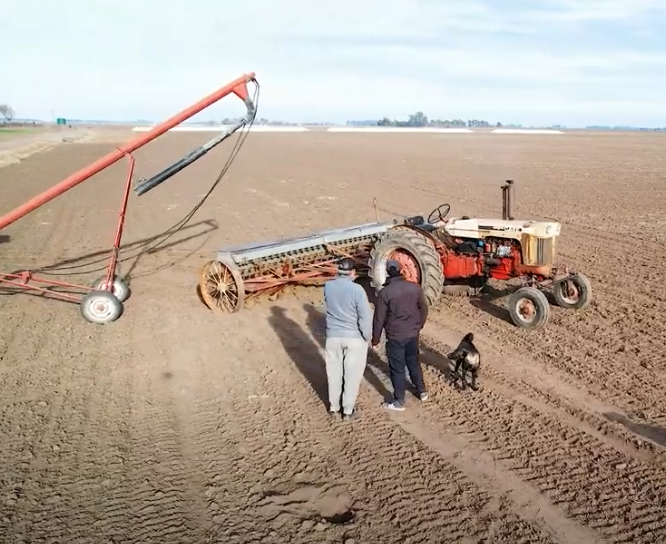
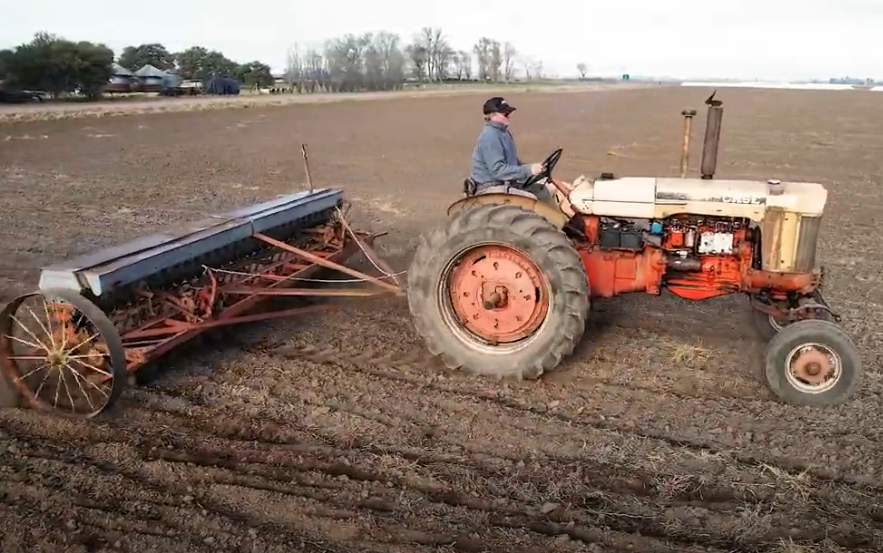
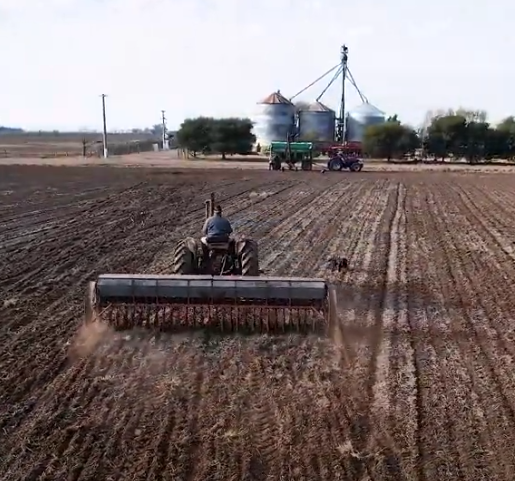
The Molea family is from Los Toldos, Argentina. For more than 60 years, they have been dedicated to meat and grain production with the help of a very special piece of equipment: a Farmall 830, acquired in 1962.
Over the years, this family business that today has been working in the field for three generations has undergone multiple technological changes, always with this iconic model as a tireless companion.
“The first purchase of a Case IH machine was from my grandfather, in 1962, when he acquired the Farmall 830. To see a model like that, at that time, was a novelty. It was an agile tractor and much more versatile than what was available at the time. The whole family learned to drive tractors with this equipment. We still use it in all our tasks and it works very well”, says Hernán Molea.
Enzo Molea, grandson of the founder of the farm, highlights the importance of learning and teaching in the family, since his grandfather and father taught their children and grandchildren to drive tractors from an early age, and says: “We were all apprentices with this tractor, since I was a child I learned to drive it and I took my first steps with it”.




When Bridget—one of the oldest grandchildren on her family farm—came of age, she was asked which tractor she’d like to claim as her own. Her answer was simple: a 1954 Farmall Super M-TA, the very same model her great-grandfather owned. Back then, the Super M-TA was a do-it-all tractor that helped Bridget’s family reliably and efficiently tackle all sorts of jobs, making it a field staple and a farm favorite all at once.
While the original Super M-TA Bridget’s great-grandfather owned was sold to her uncle and traded in for another tractor, she never forgot about the family Farmall. Today, Bridget’s Super M-TA is a popular favorite at local parades and shows alongside other legacy tractors in the family collection. She appreciates the power steering it offers when making tight turns—almost as much as she enjoys carrying on the strong and long-lasting Case IH legacy her great-grandfather started years ago.




When Charlie Bortner and family friend Wyatt first stumbled upon a disused 1938 International Harvester Farmall F-20, they knew they had to restore it. Farmalls had a long history in the Bortner family, and repairing one felt like a passion project worth pursuing—especially when Charlie found a local tractor restoration competition to showcase their hard work after the job was done.
Of course, the road to restoration wasn’t easy. What Bortner believed to be a 6-month project eventually turned into a two-year-long saga of disassembling, replacing, refurbishing, and reassembling nearly every piece of the F-20. The transmission head was completely disassembled, the rear axle housing was removed and resealed, and the entire tractor was sandblasted and repainted during the extensive restoration job. Looking back, Bortner doesn’t regret a single thing: seeing the F-20 returned to its original state made both Charlie and Wyatt proud. The repairs felt even more significant when Charlie brought the tractor to his great-grandfather, who used to own and use a Farmall F-20 on their family farm in decades past.
Now, the restored F-20 serves as a reminder of the Farmall legacy that has brought—and kept—the Bortner family together across generations of producers.
No matter what you need to get done on your farm, we have many versatile Farmall models and other Case IH tractors that are perfect for any task. Discover which is right for you.